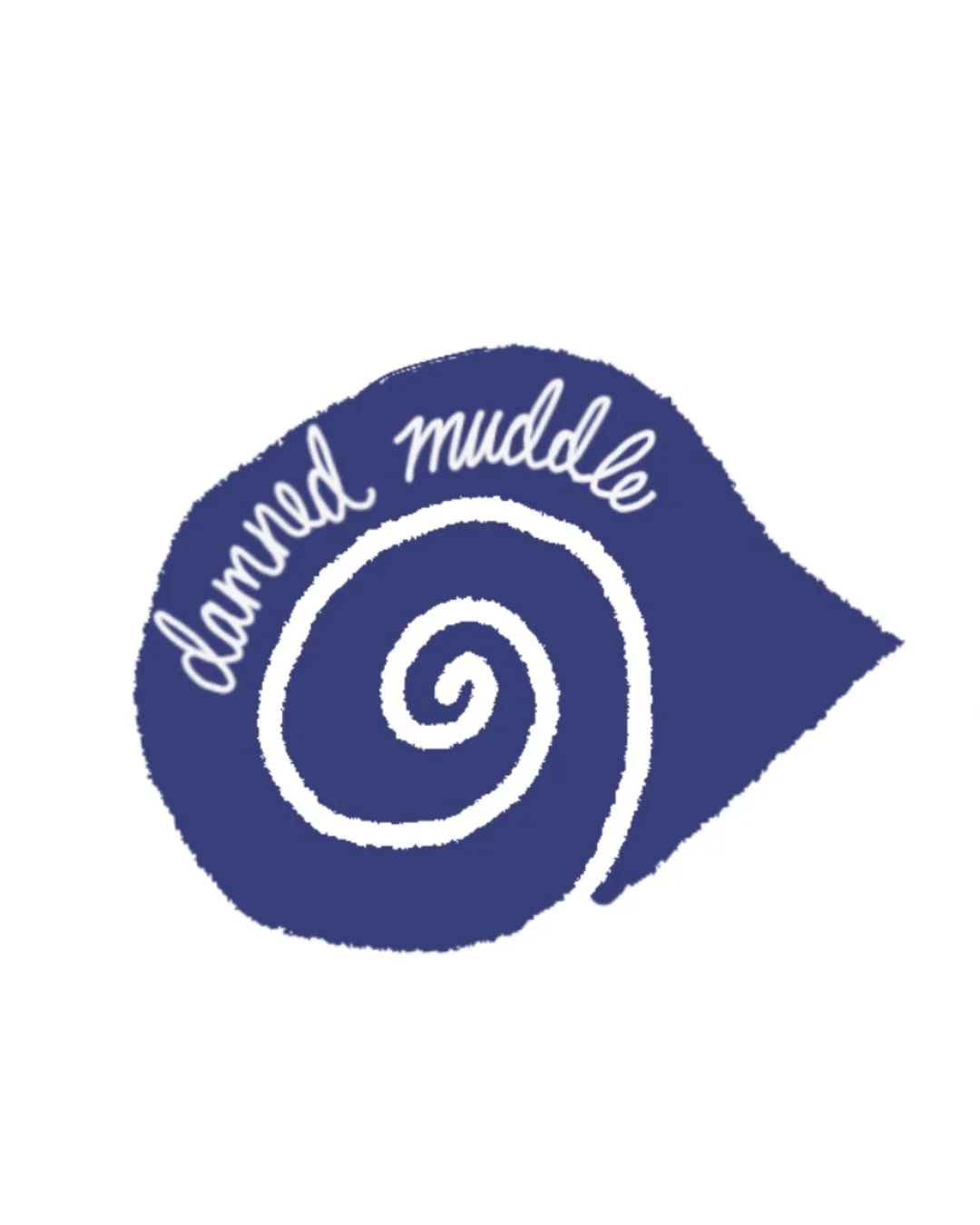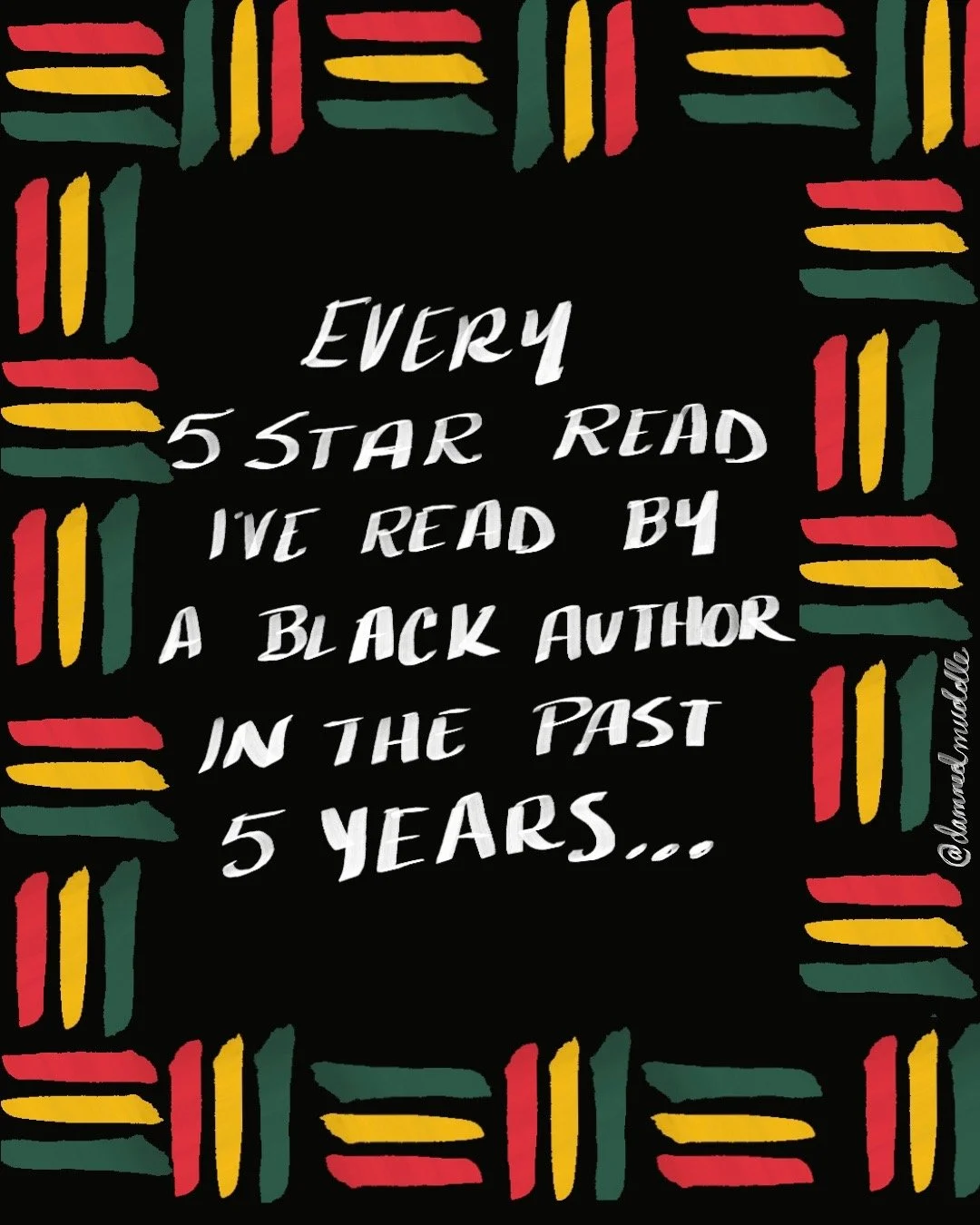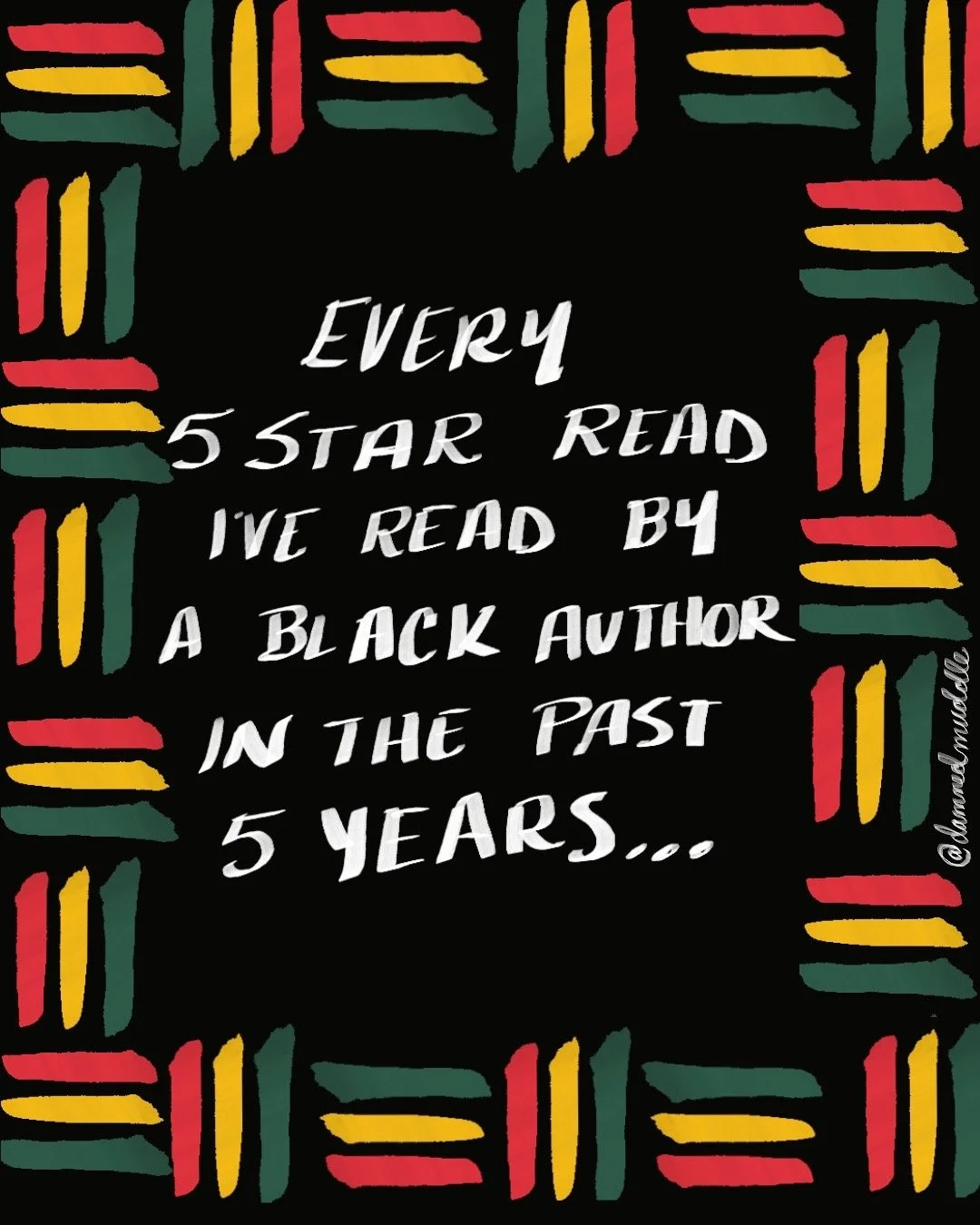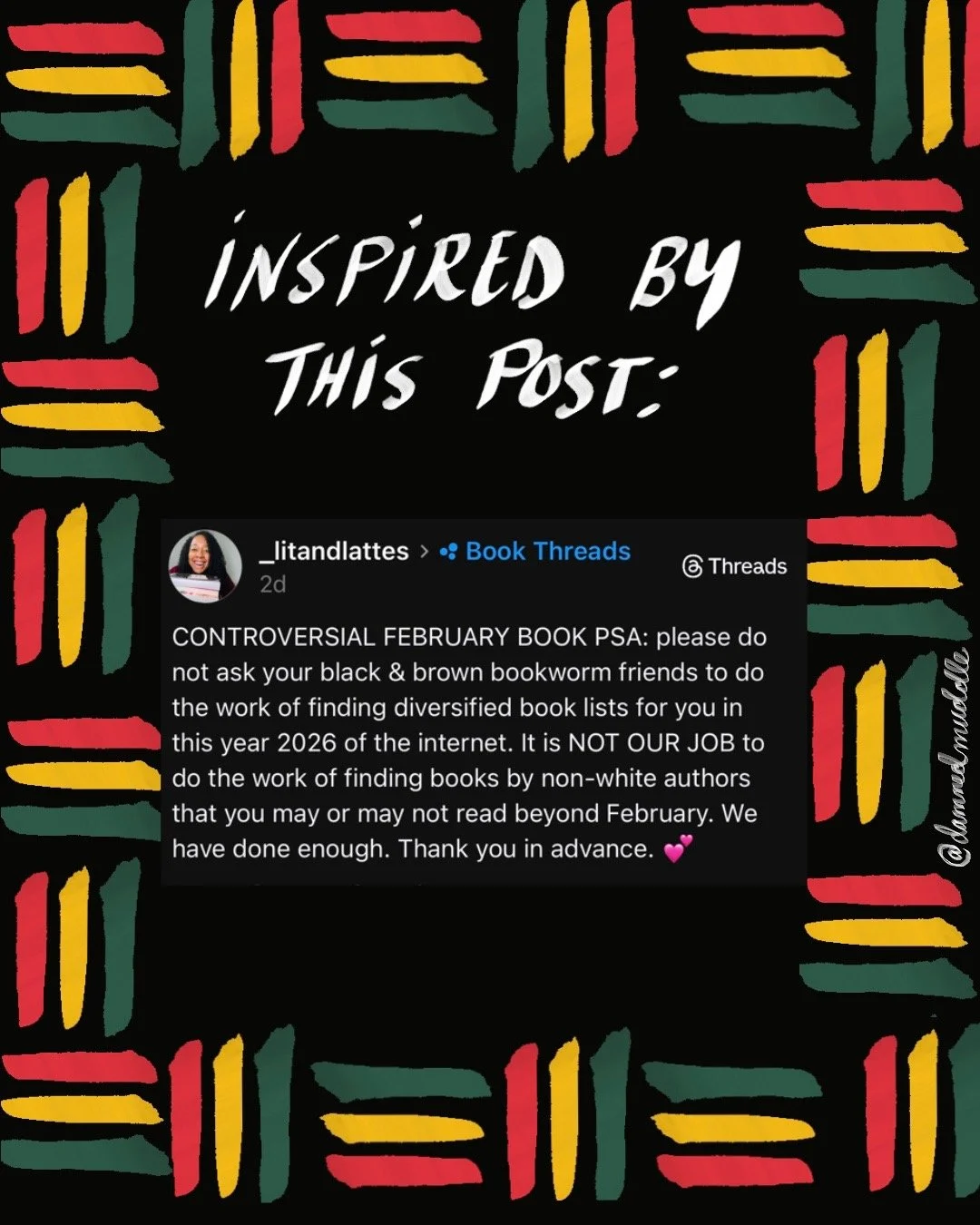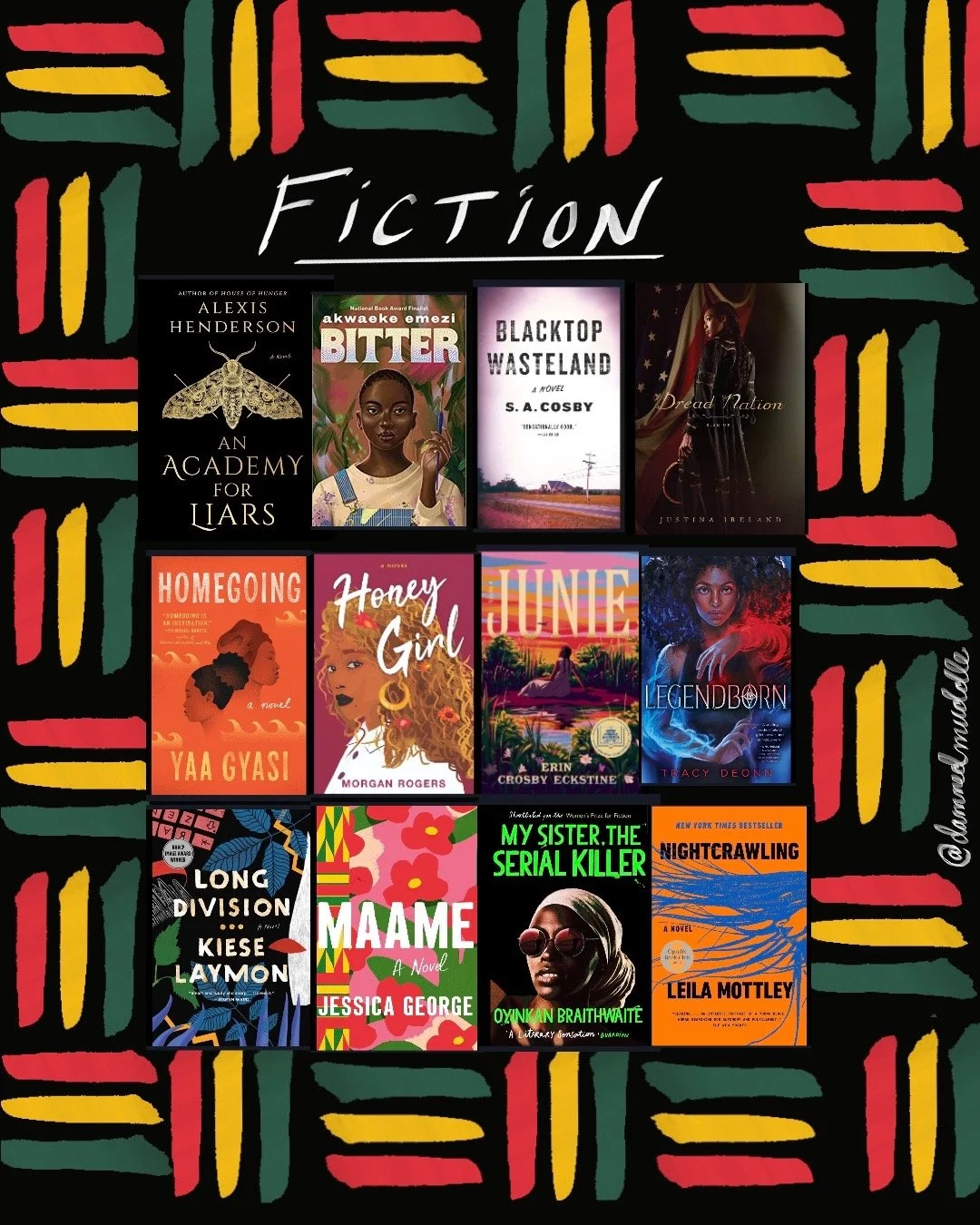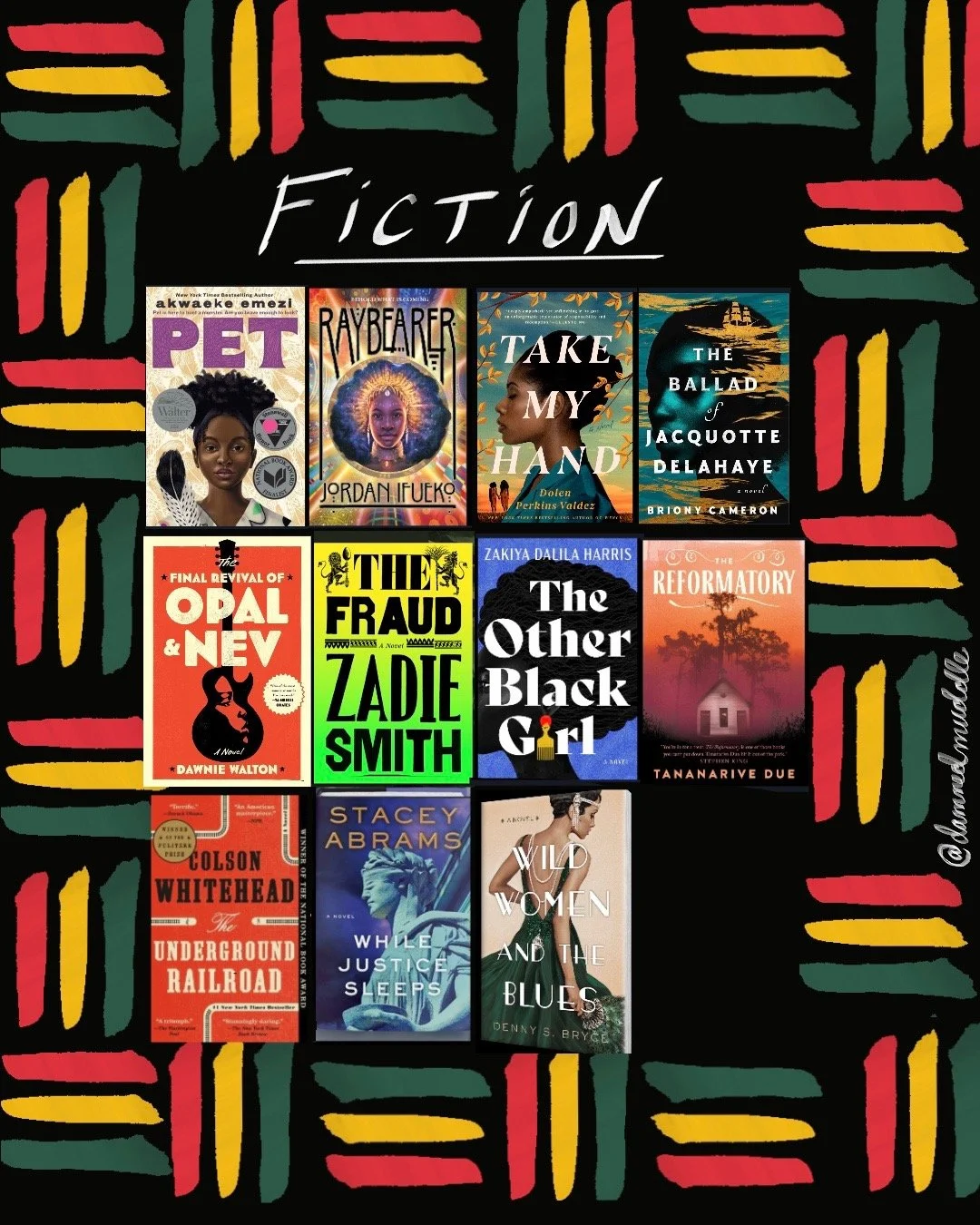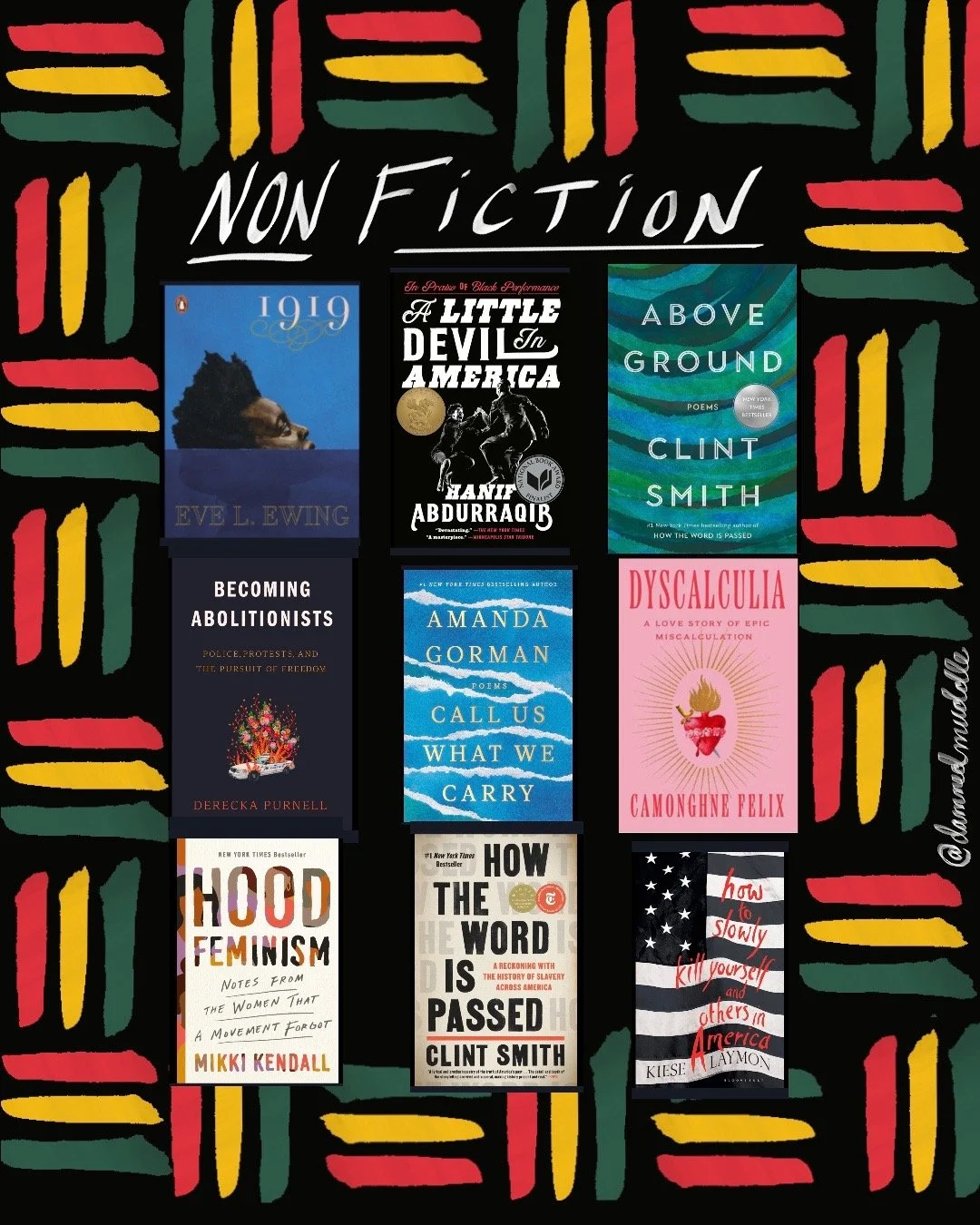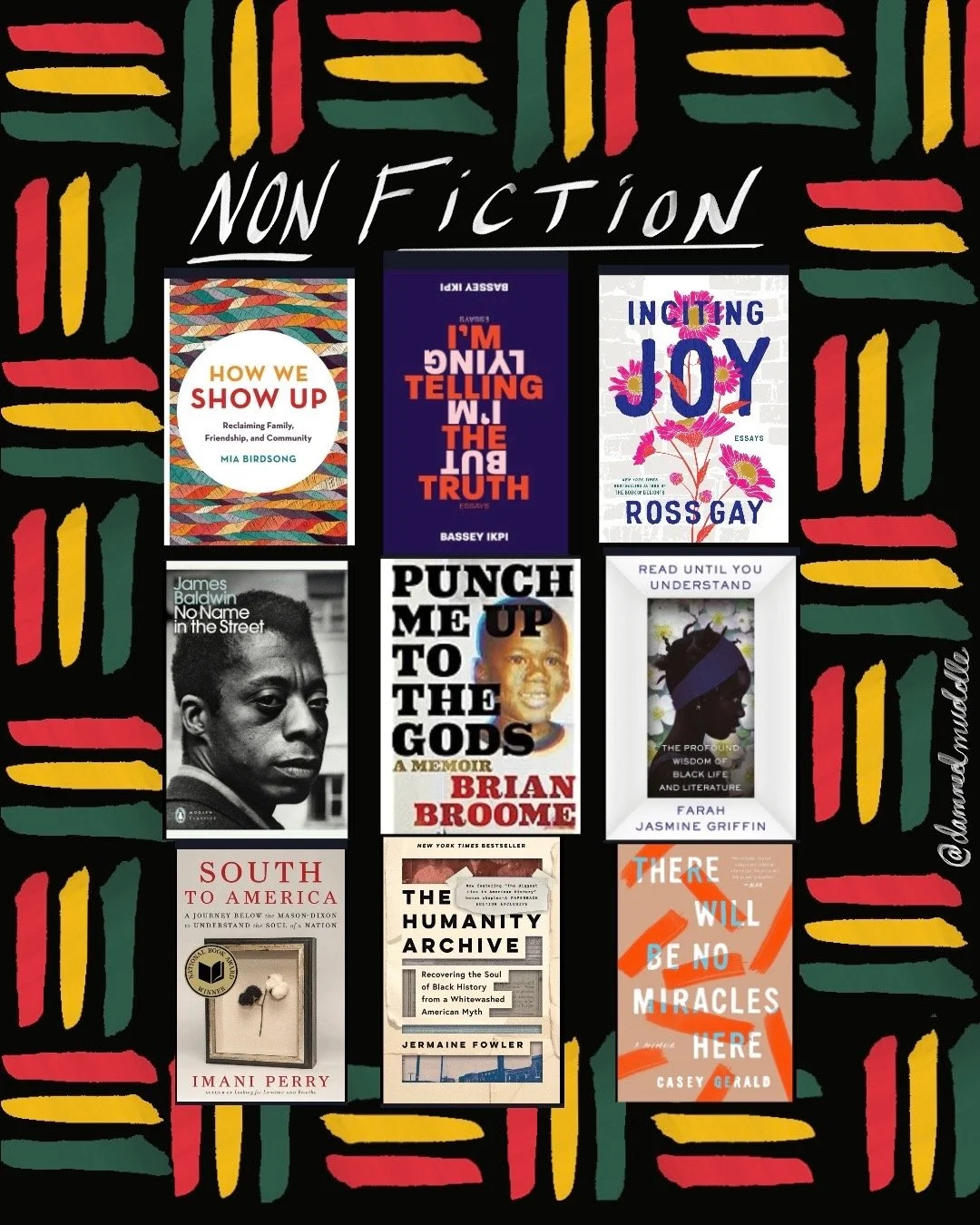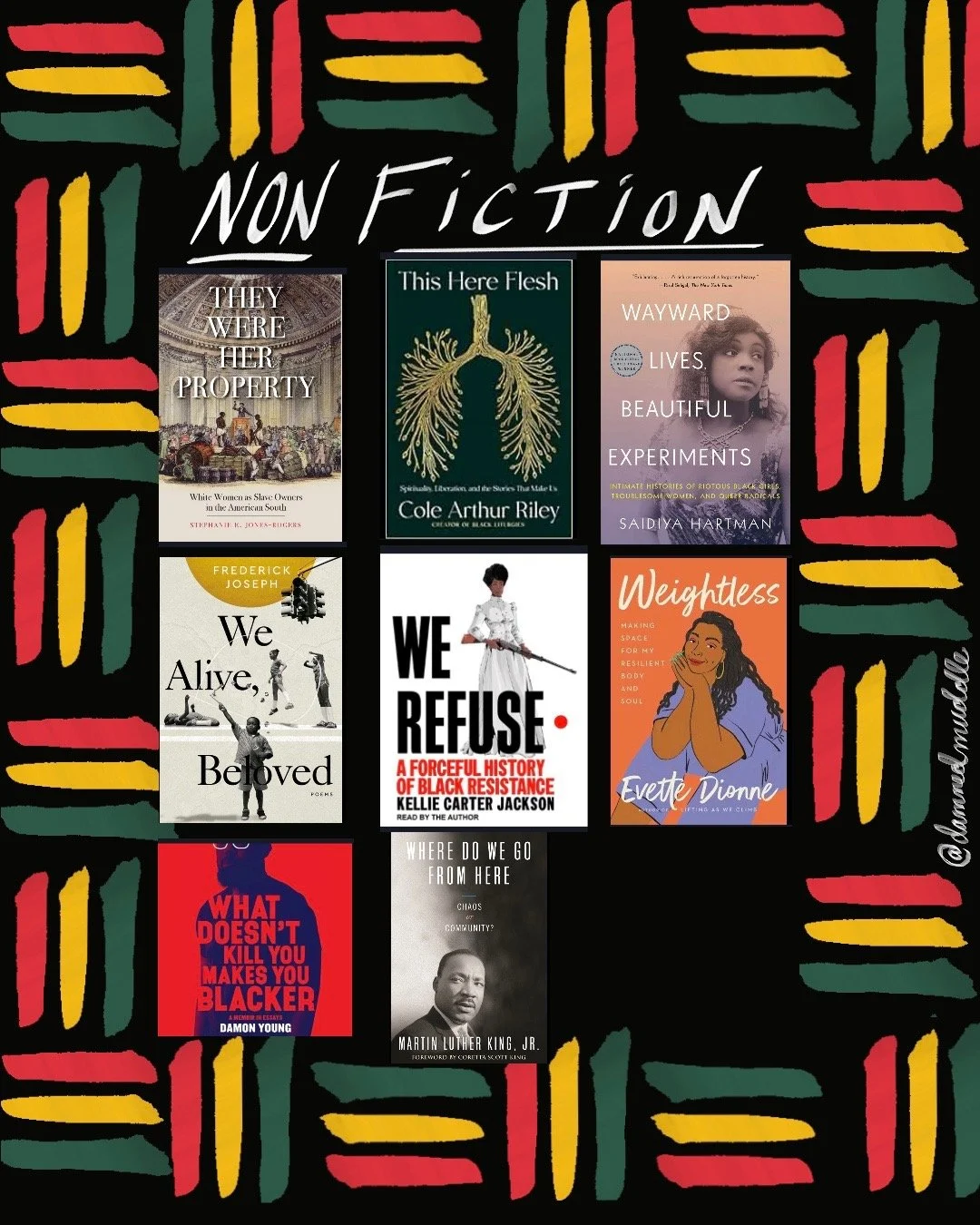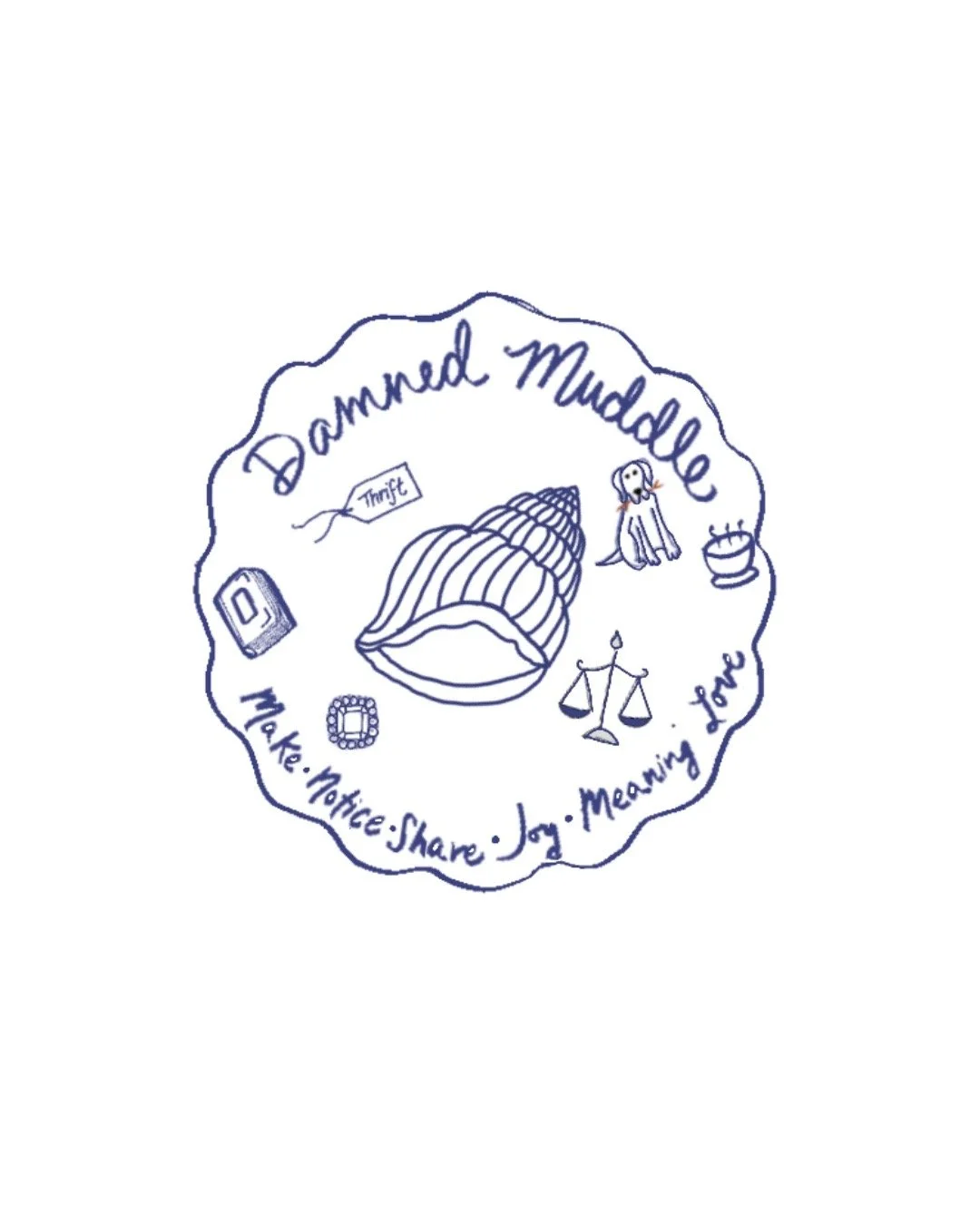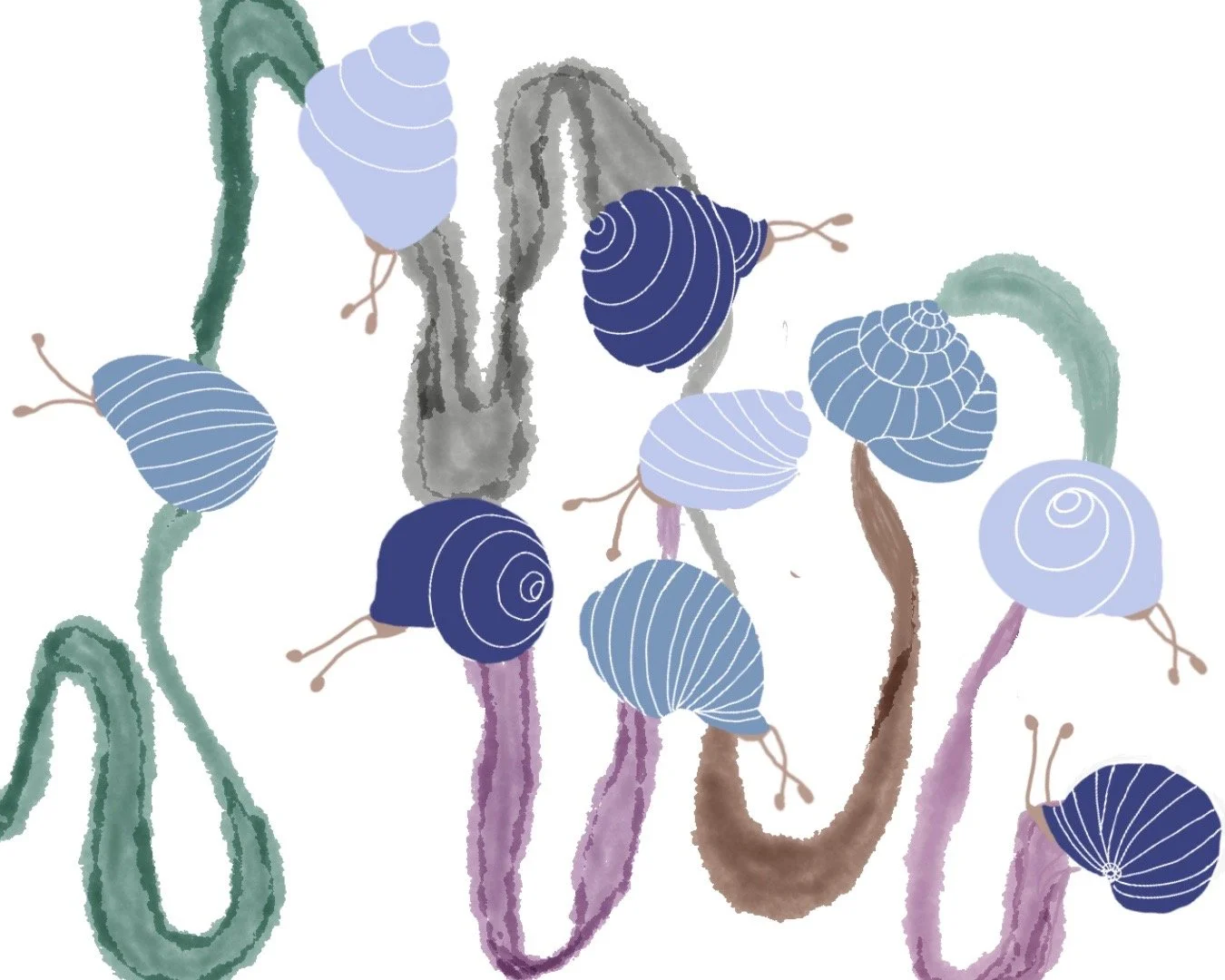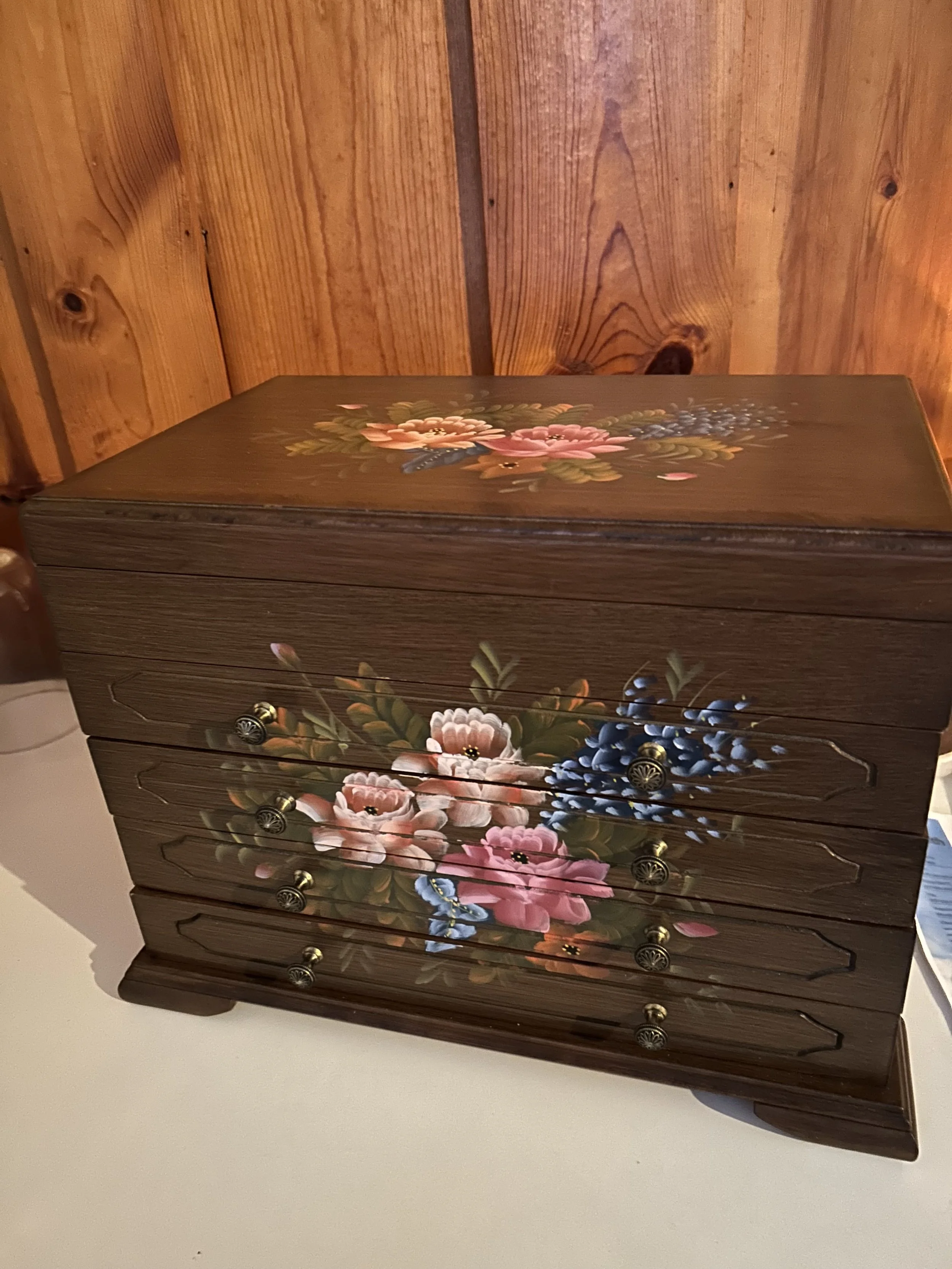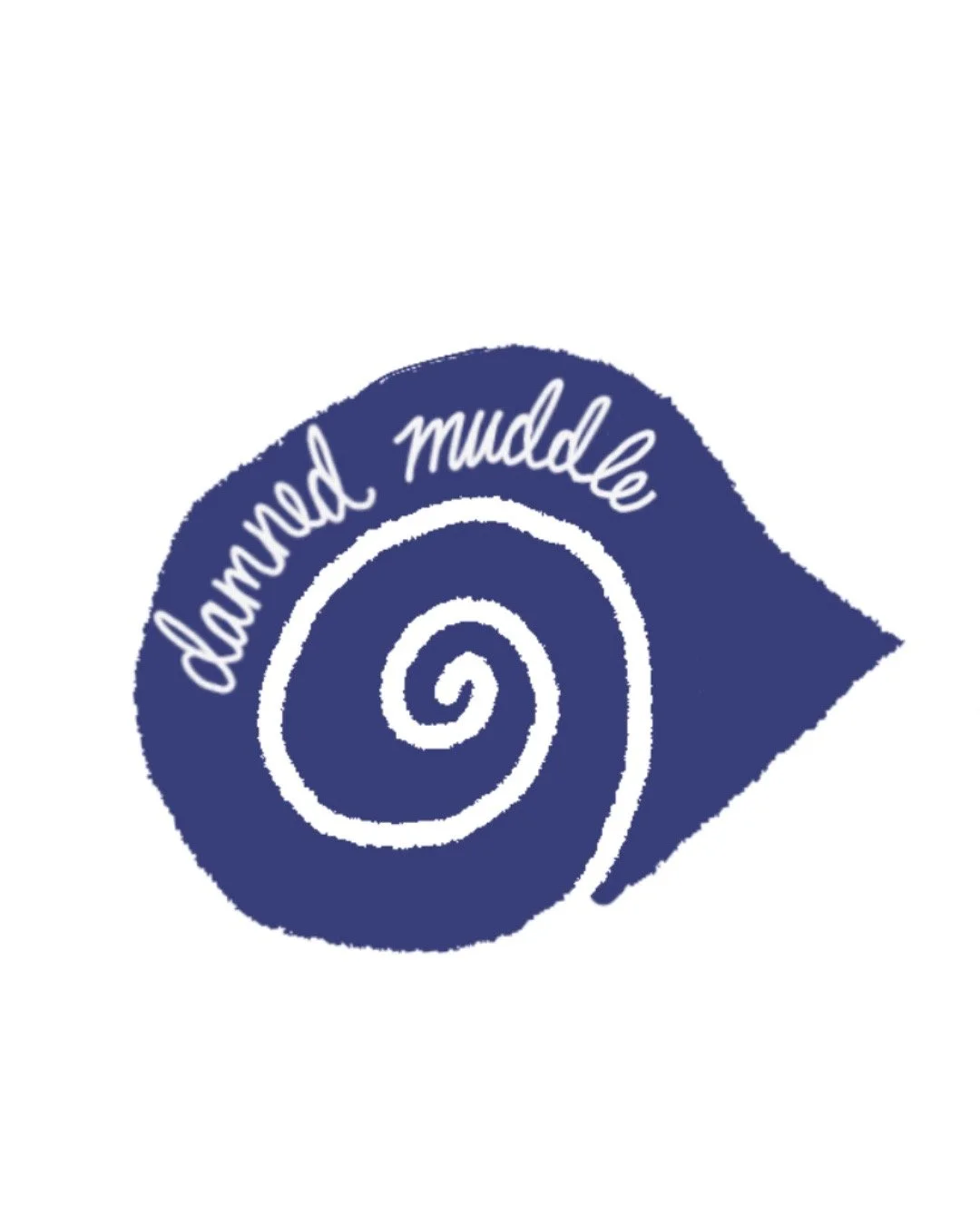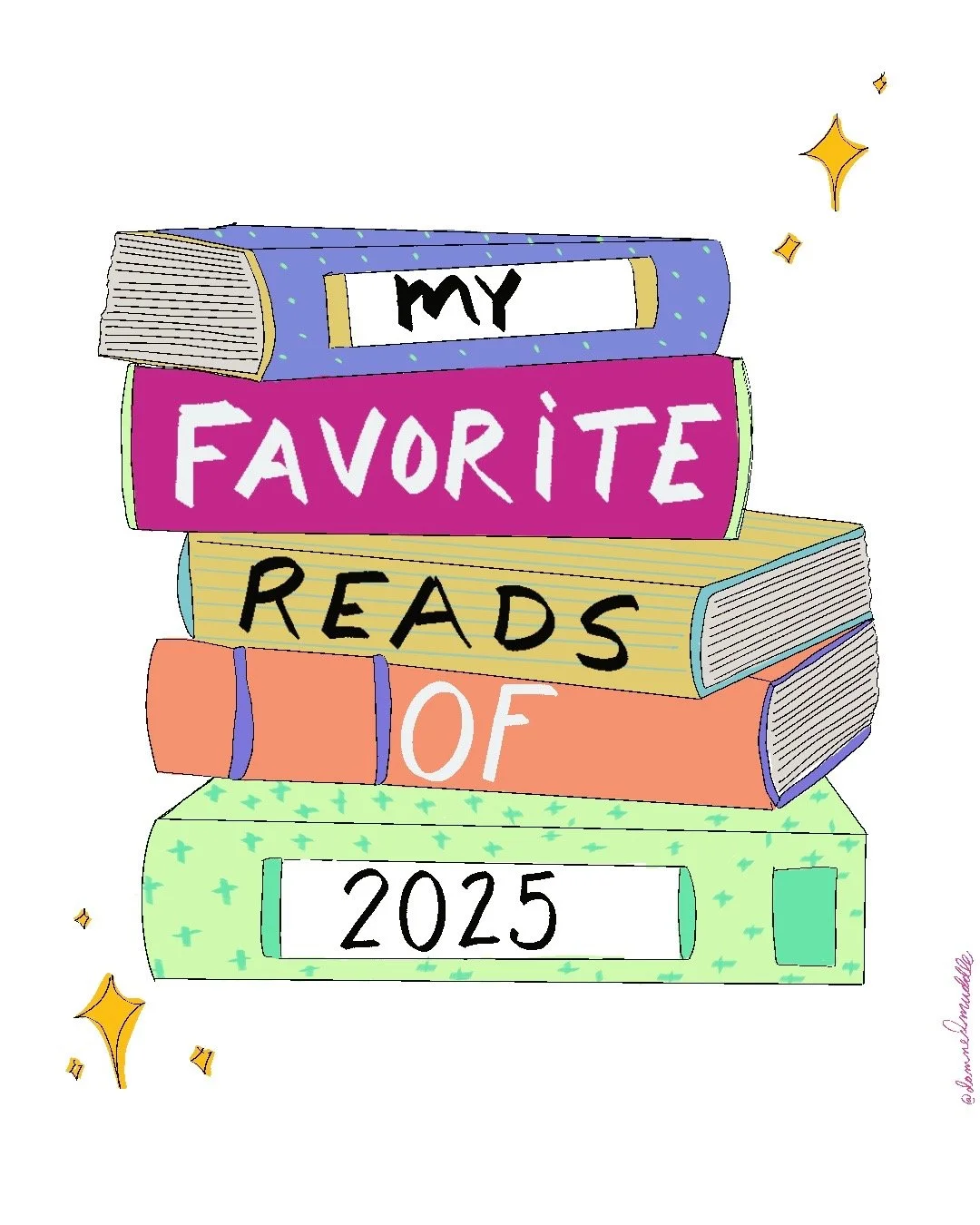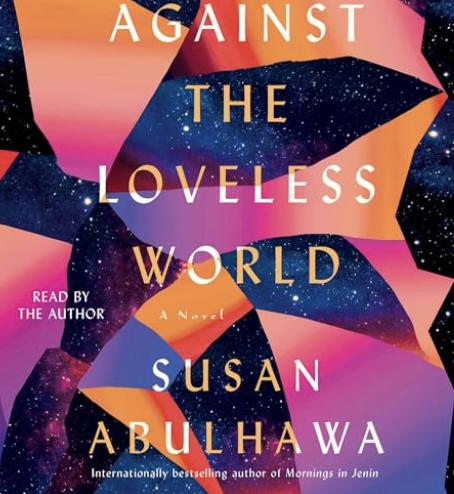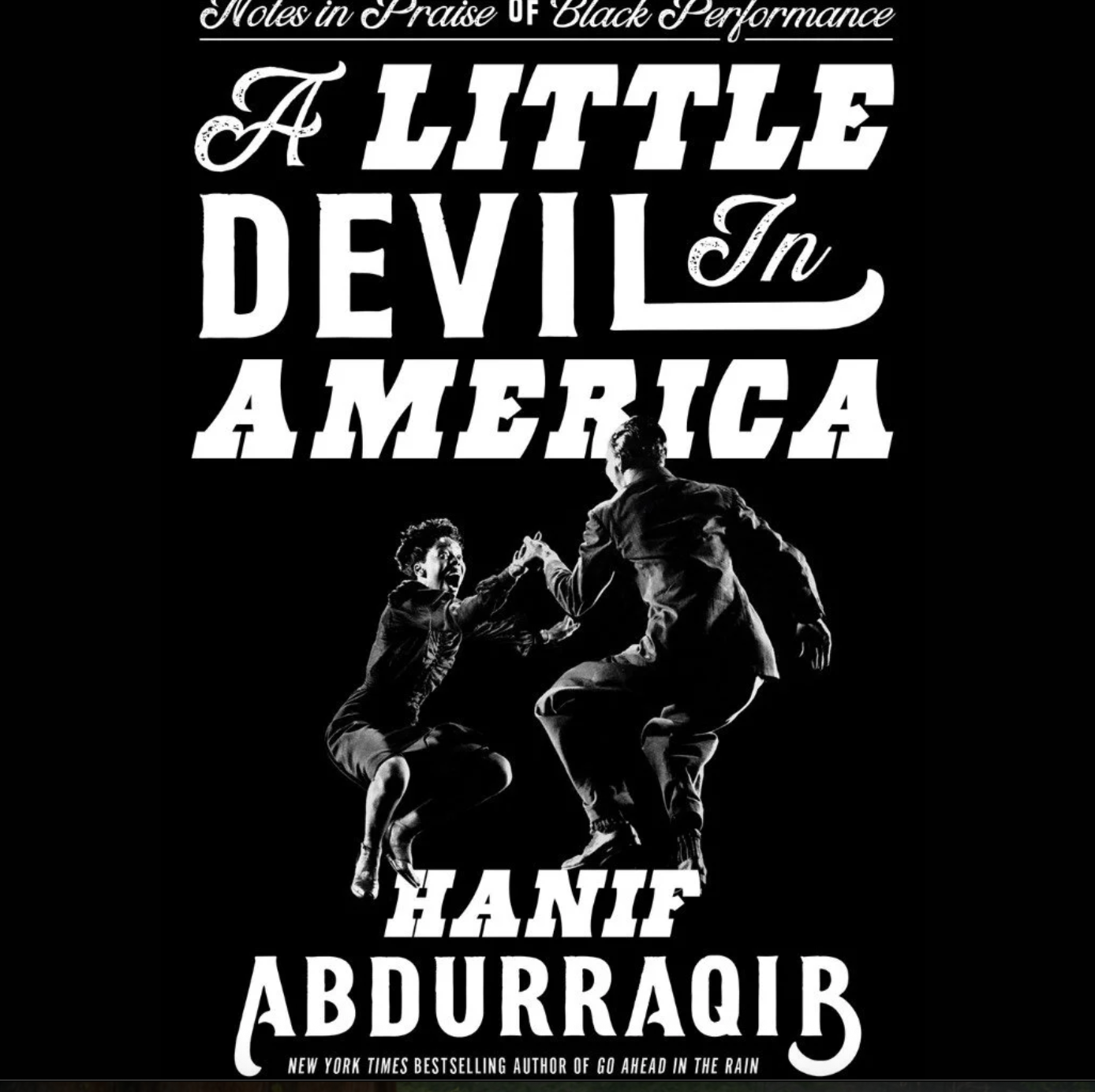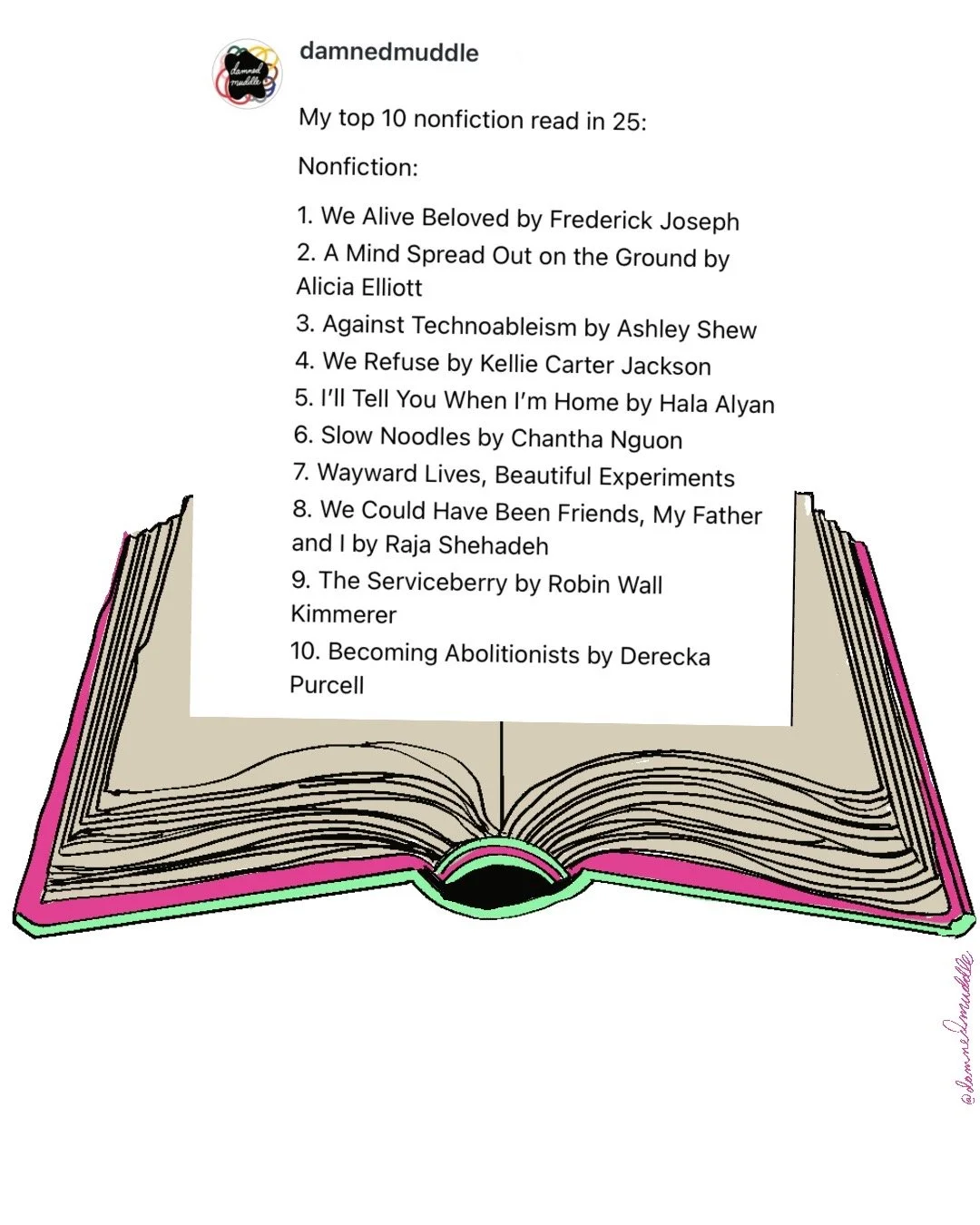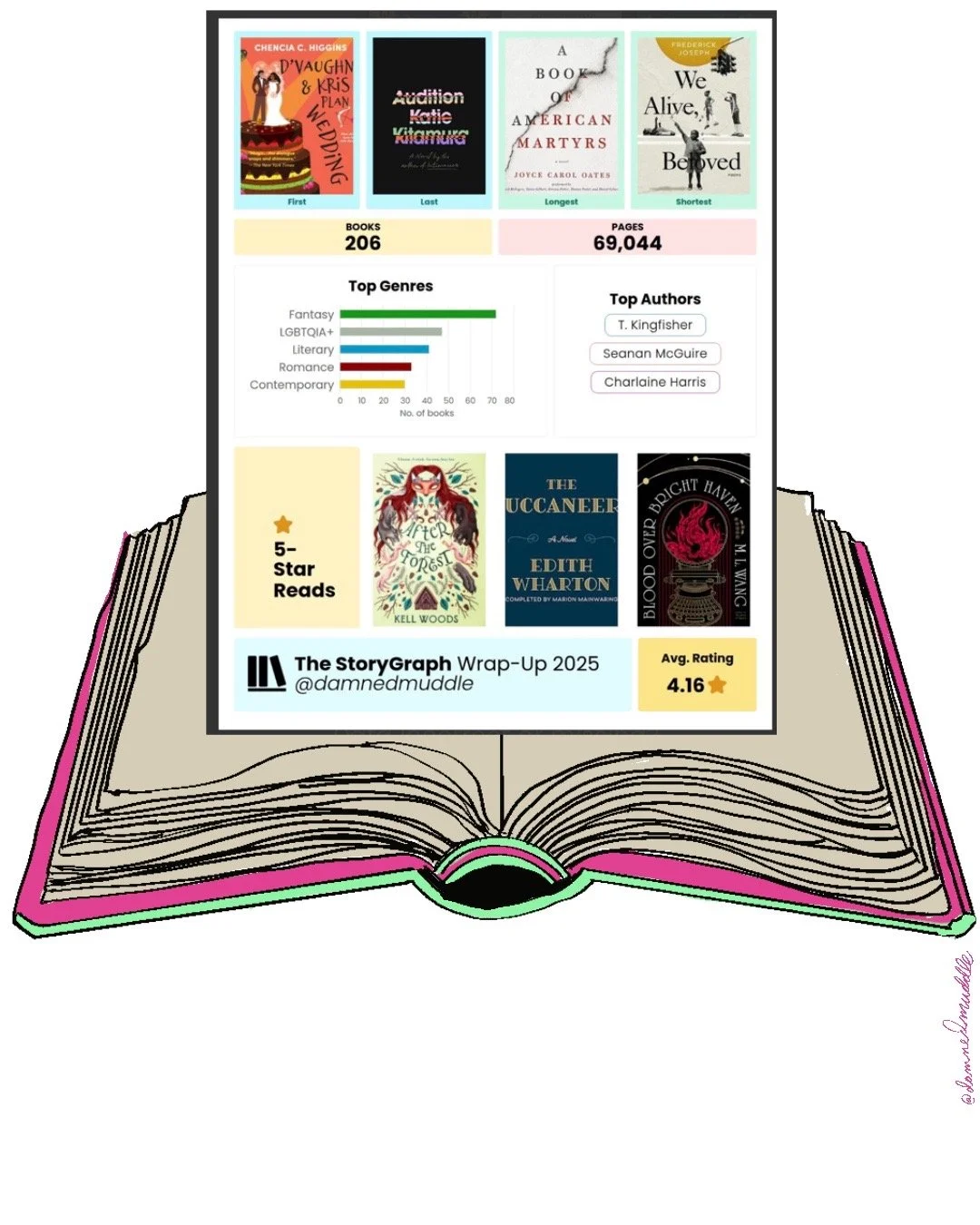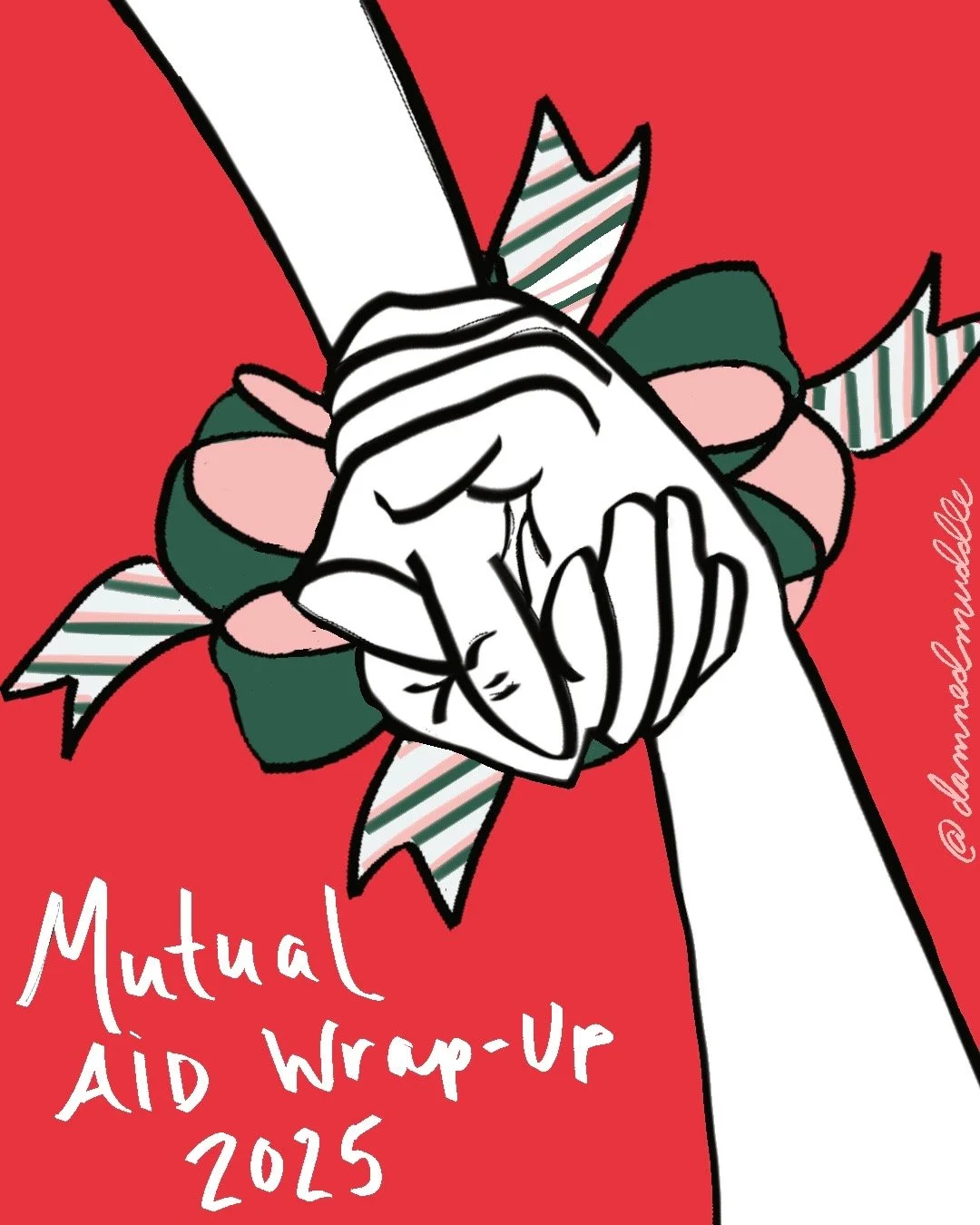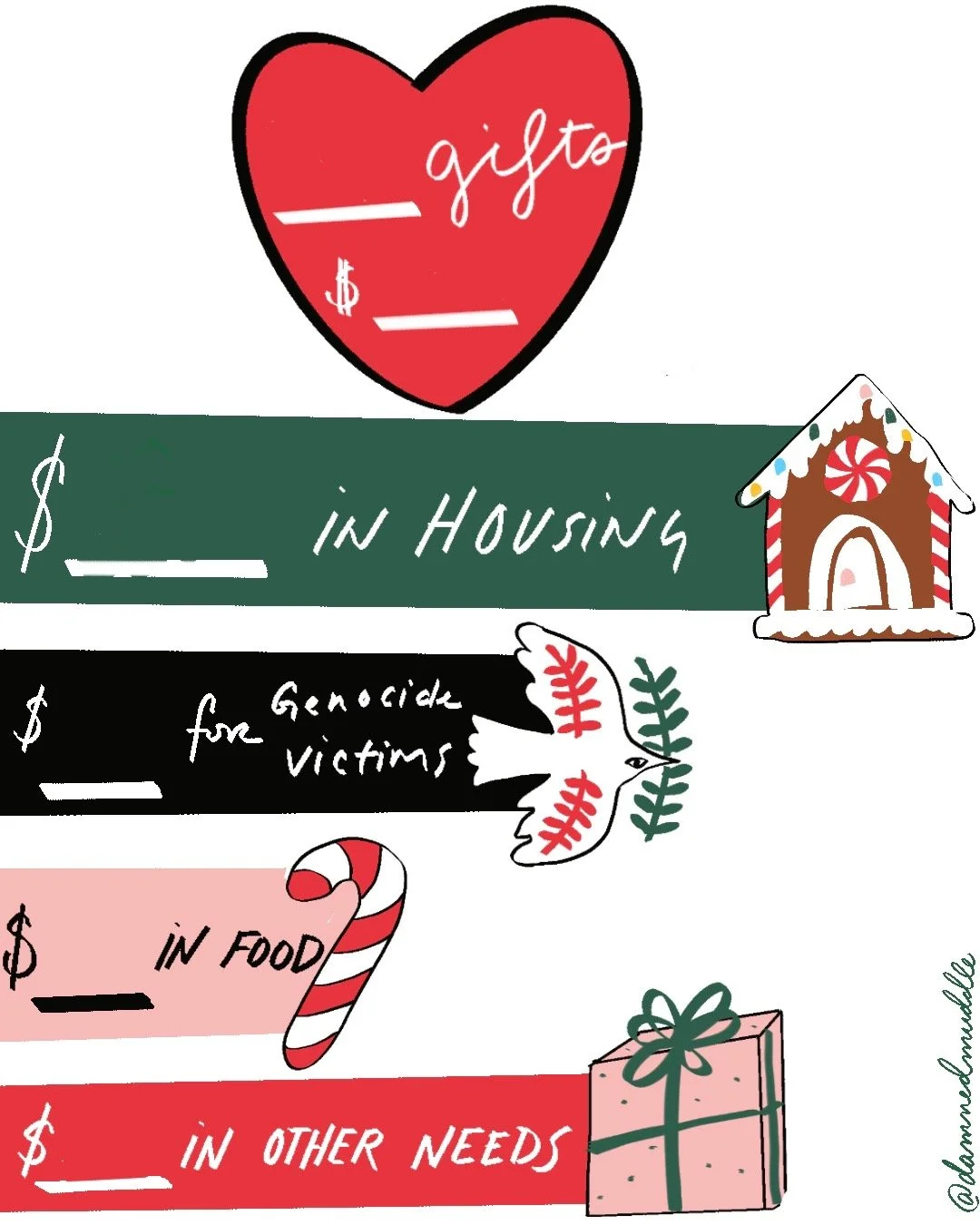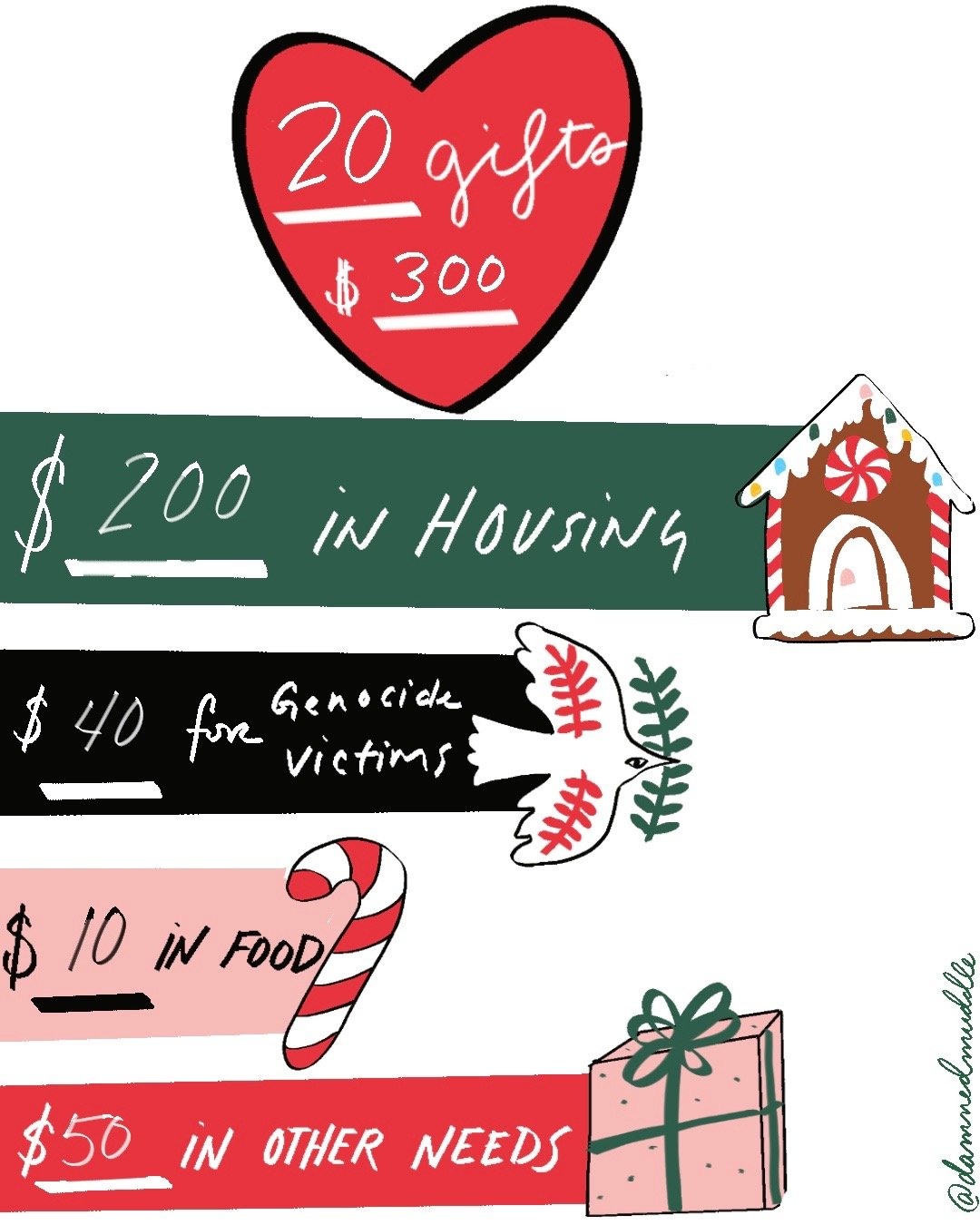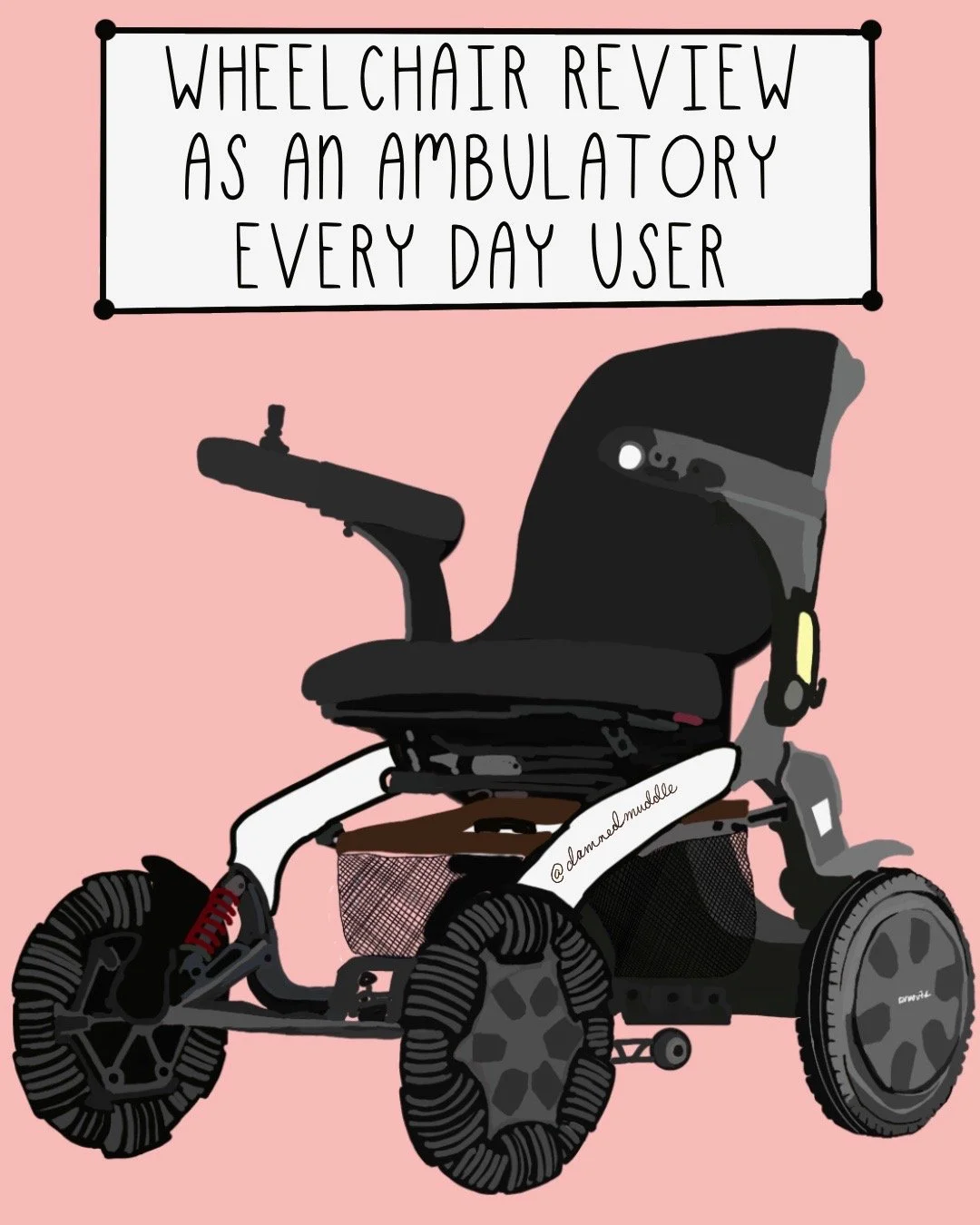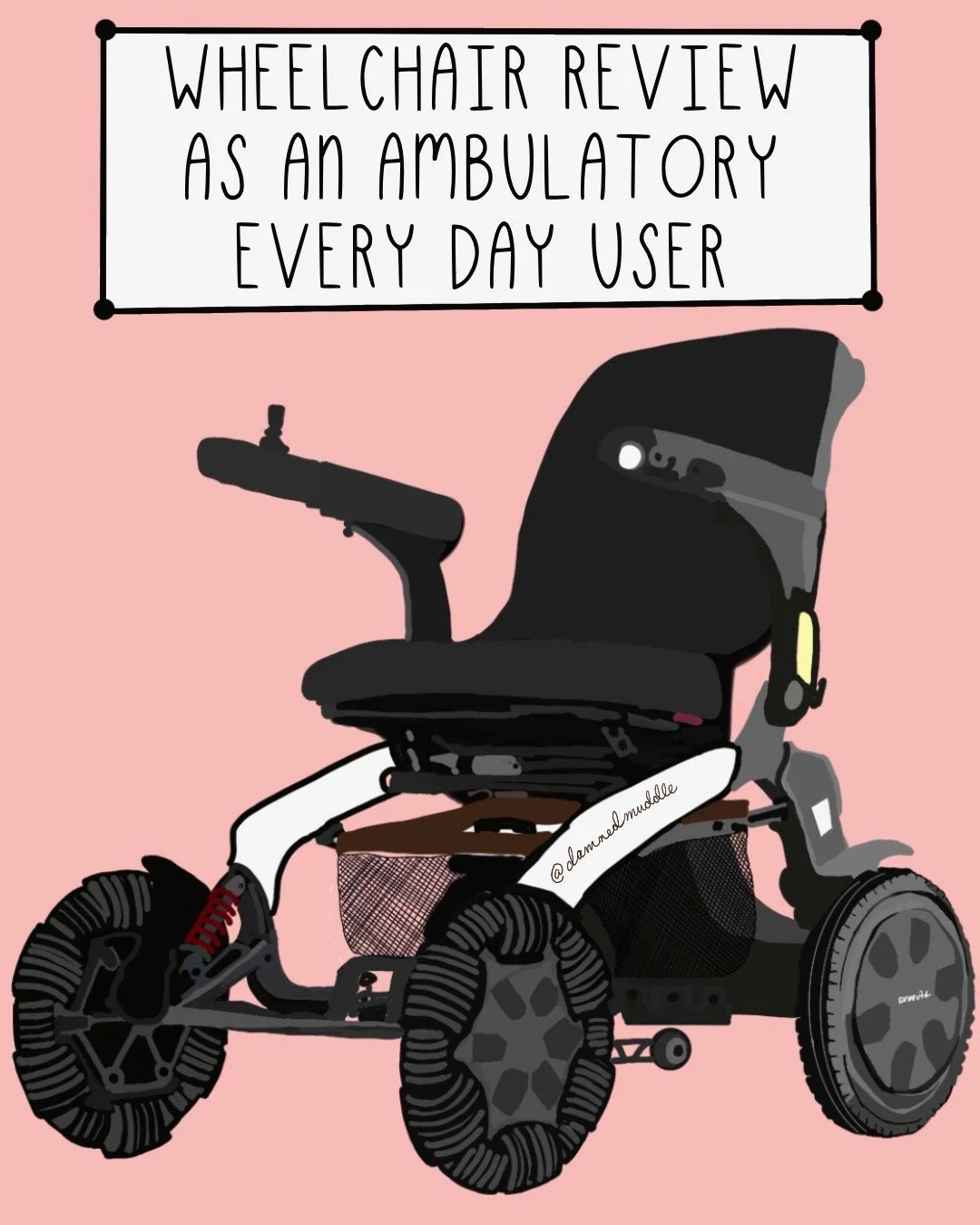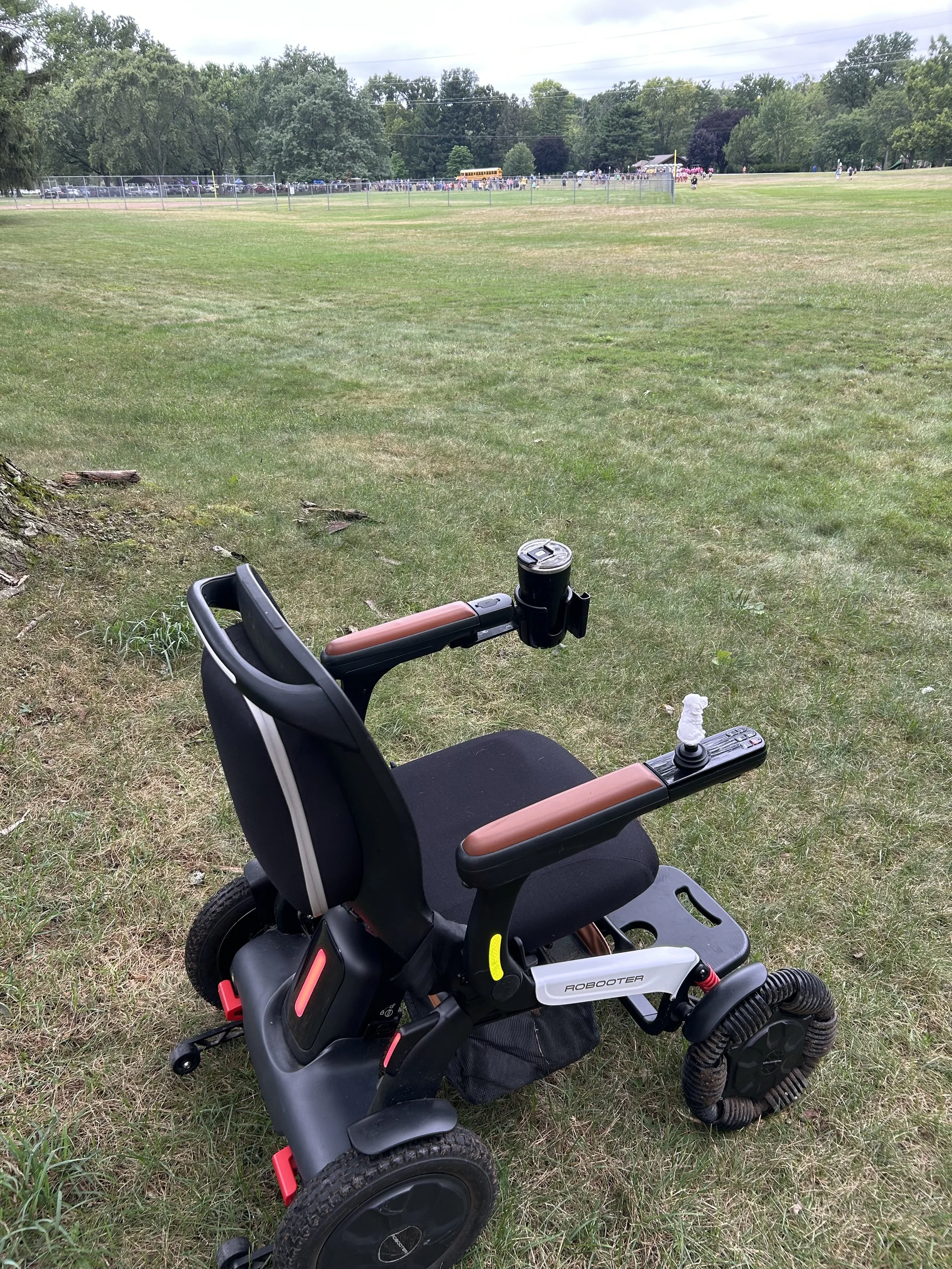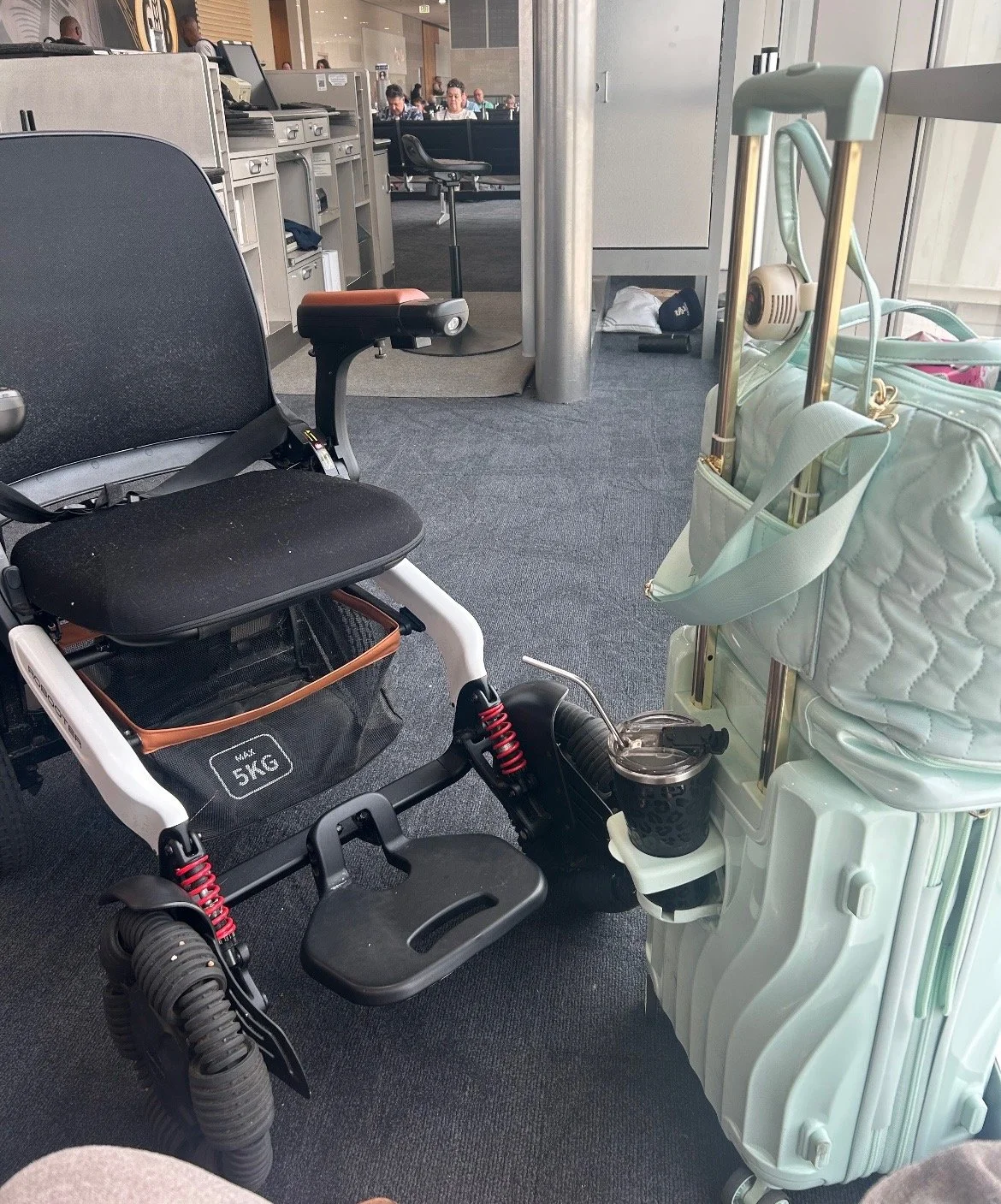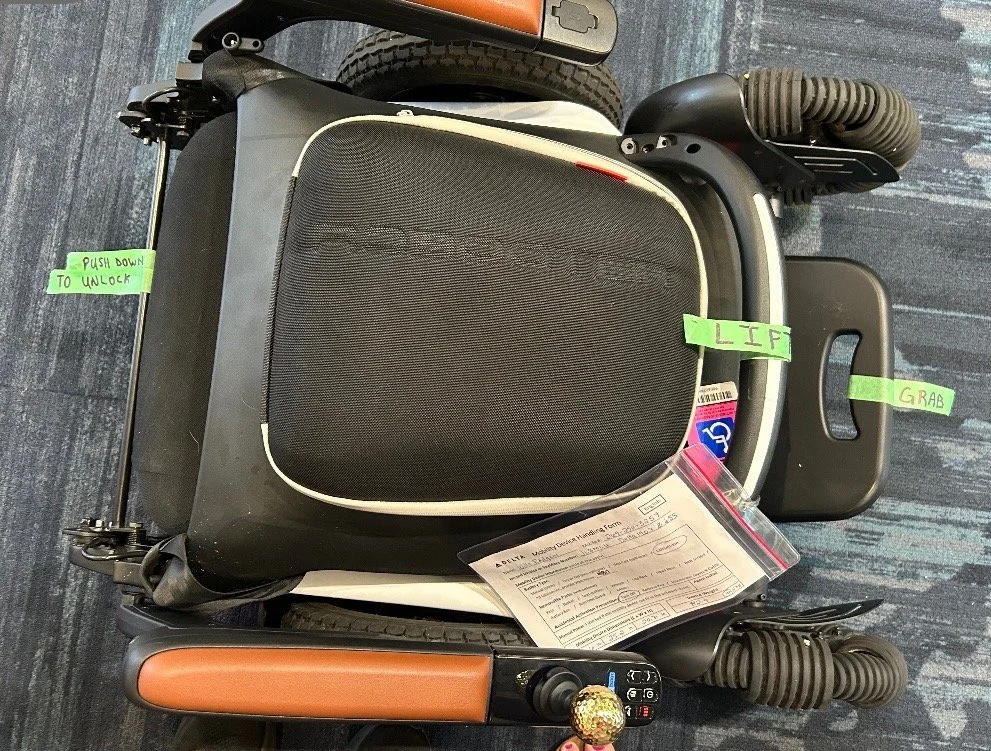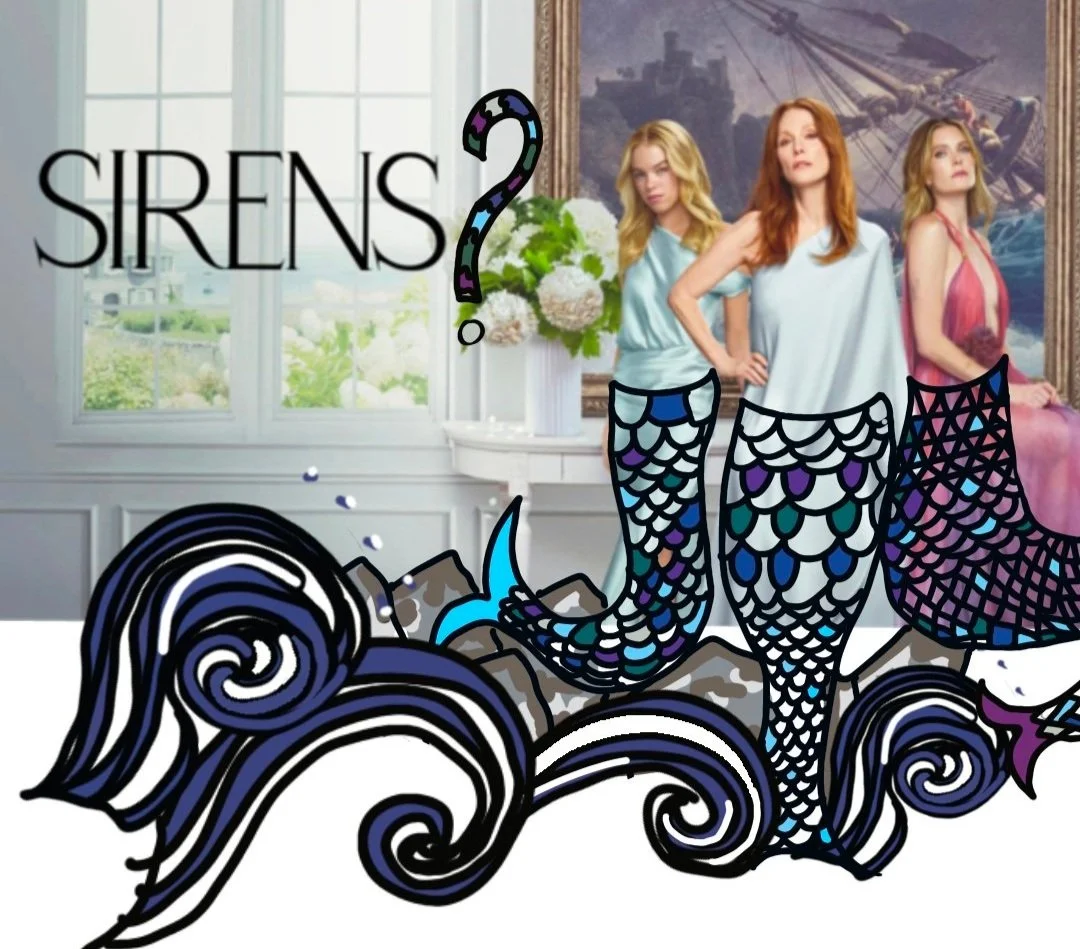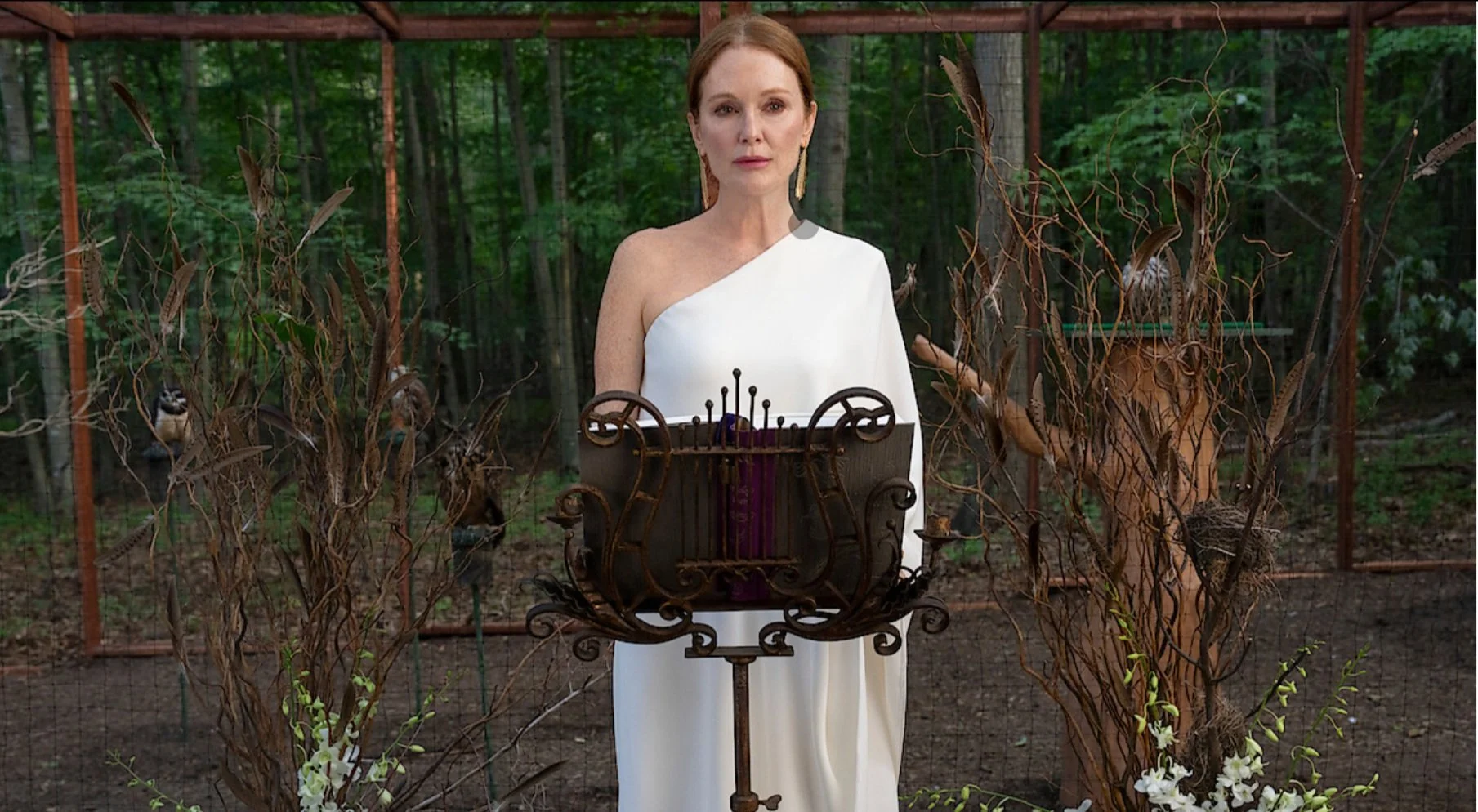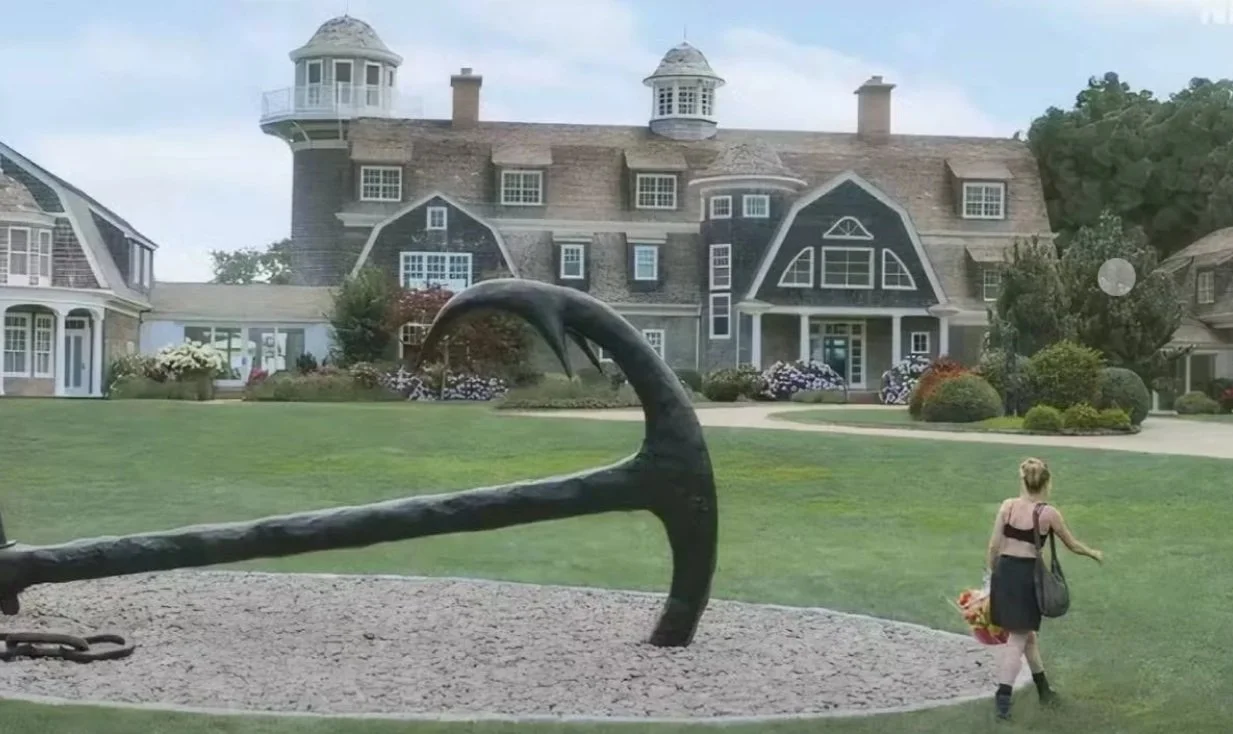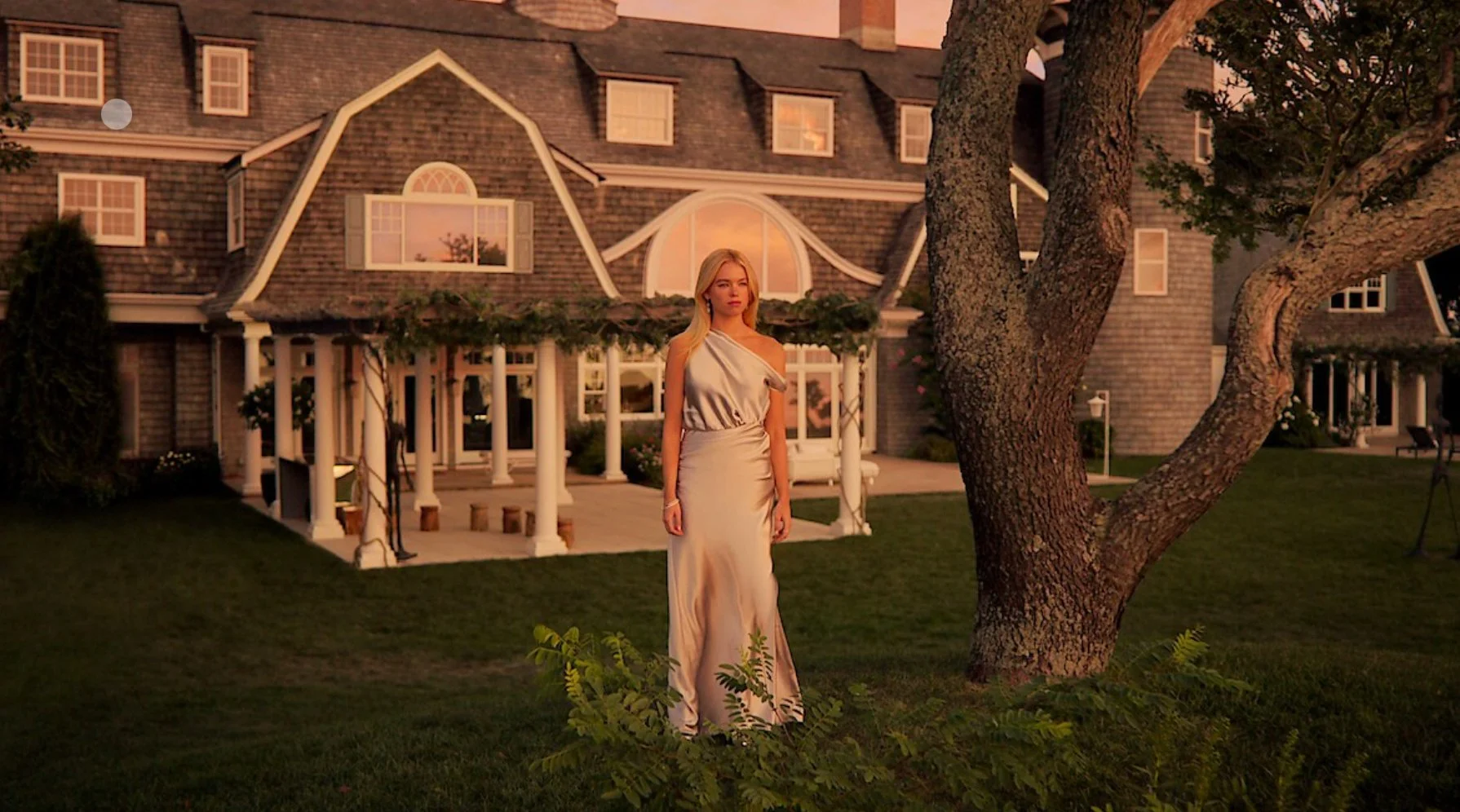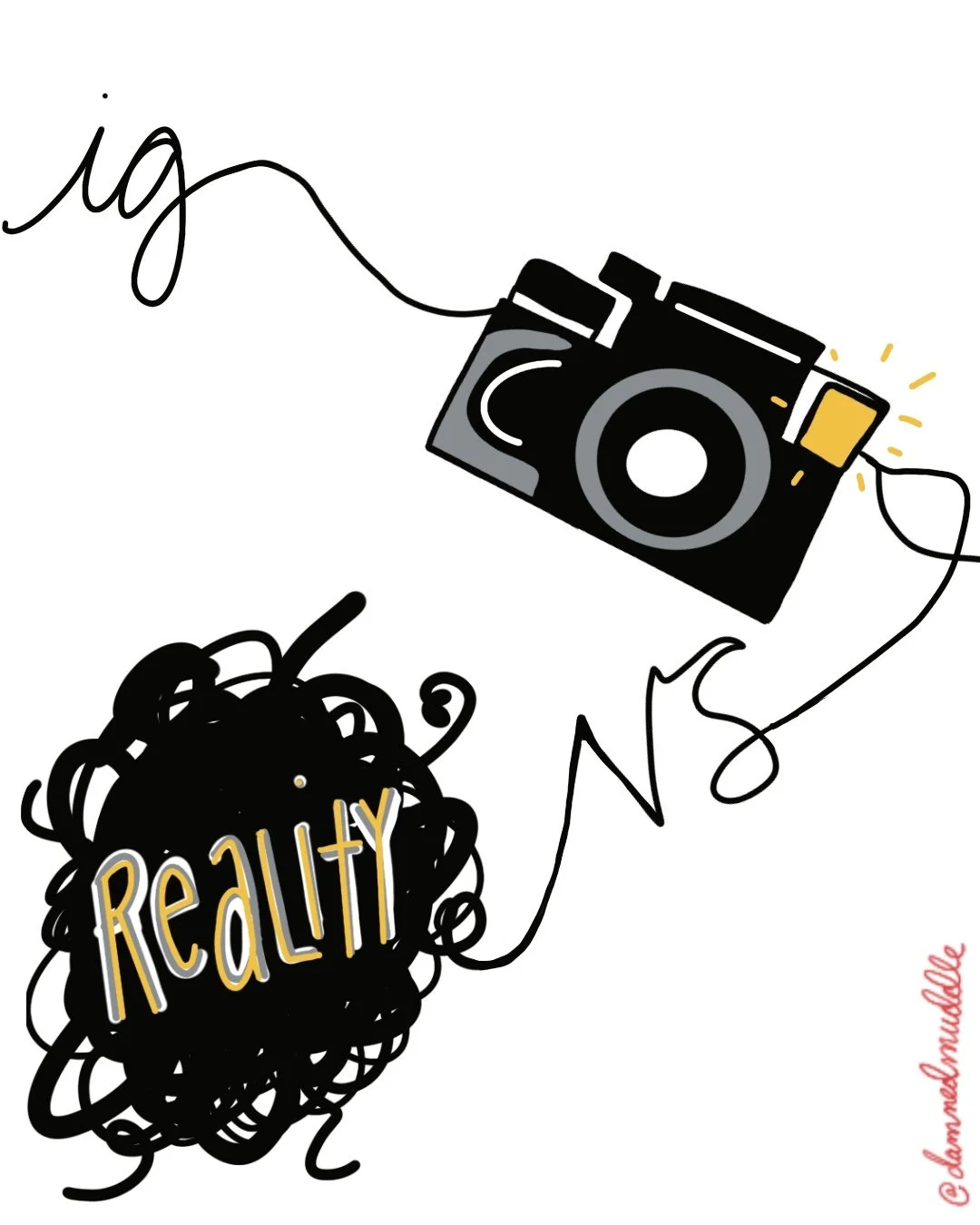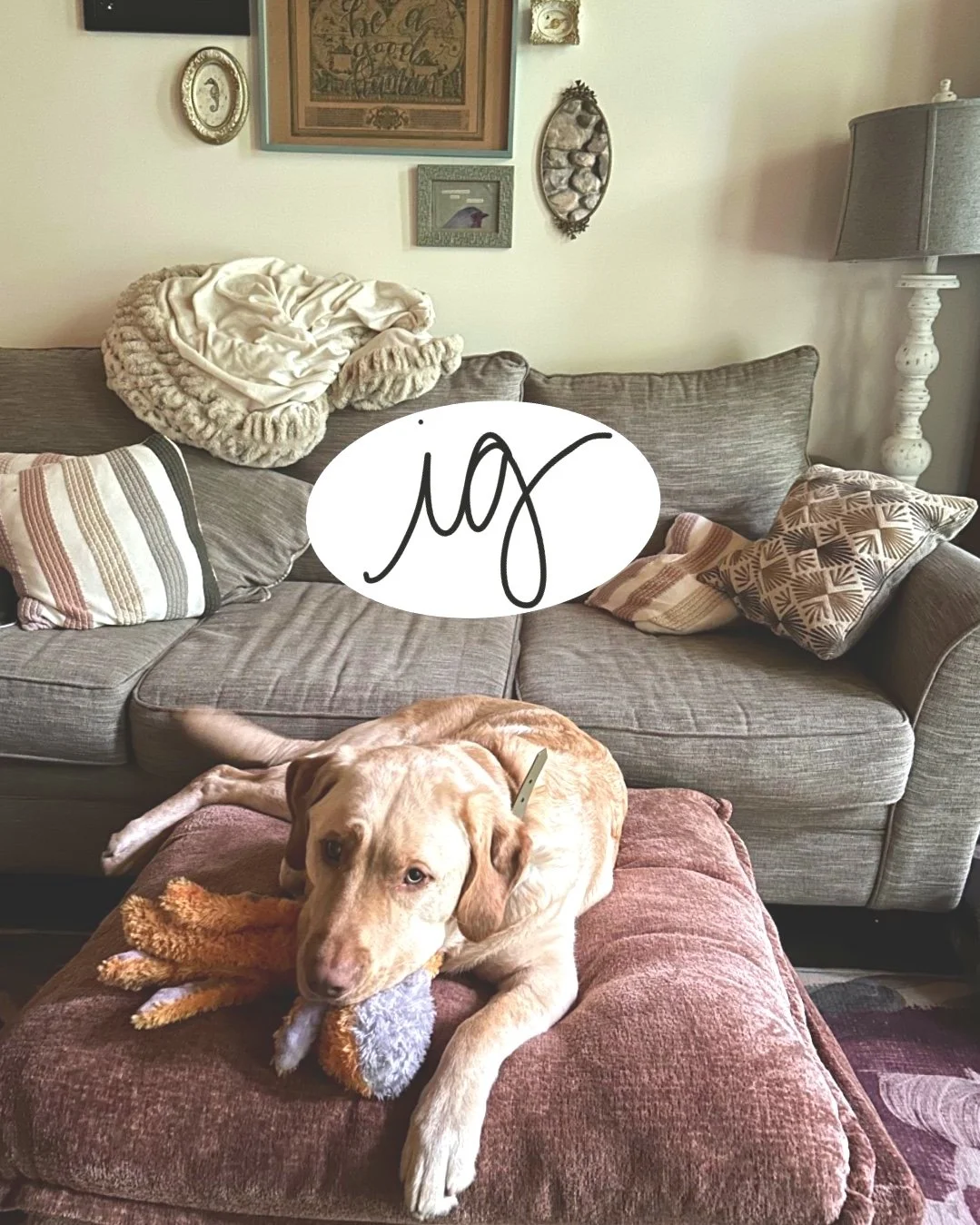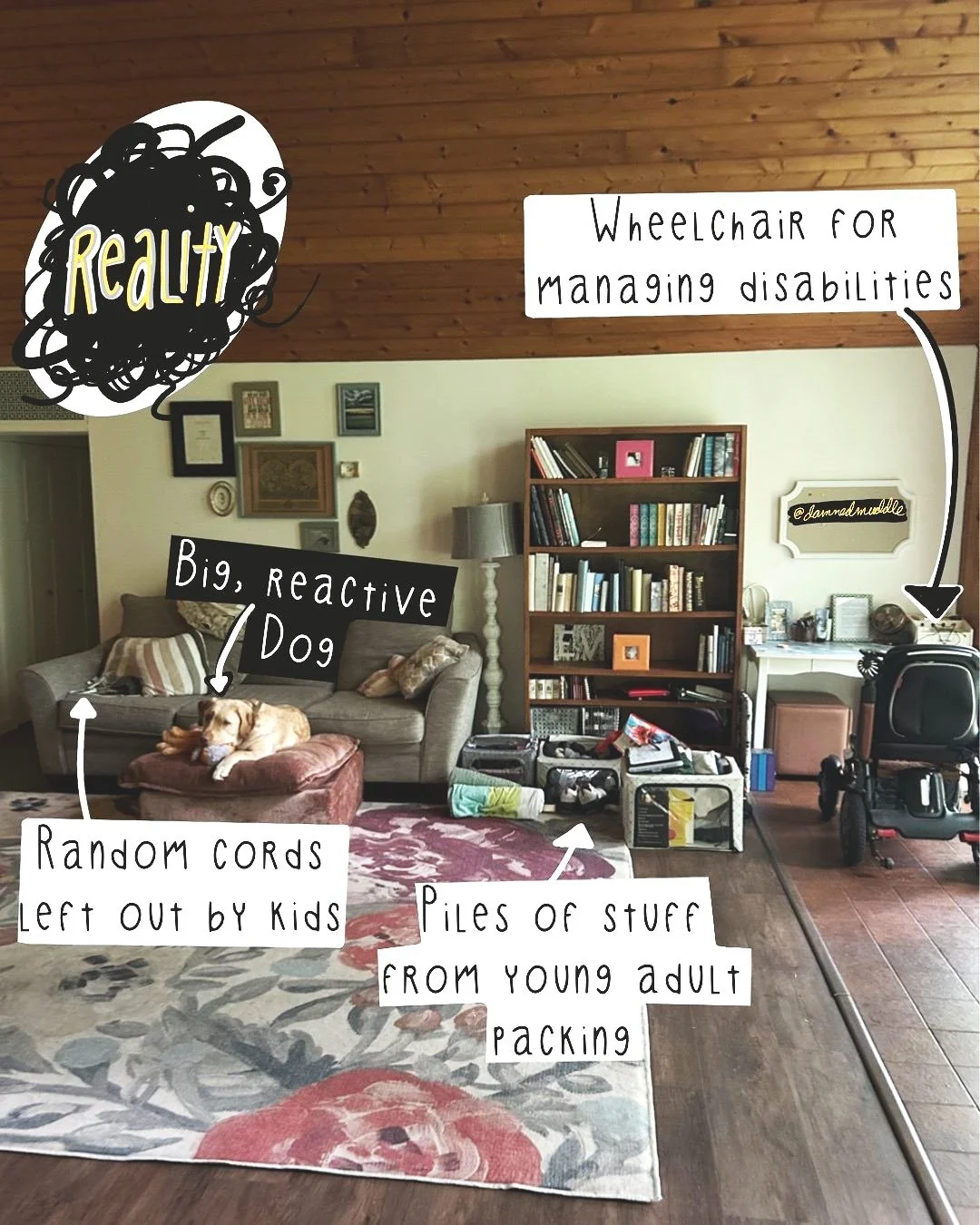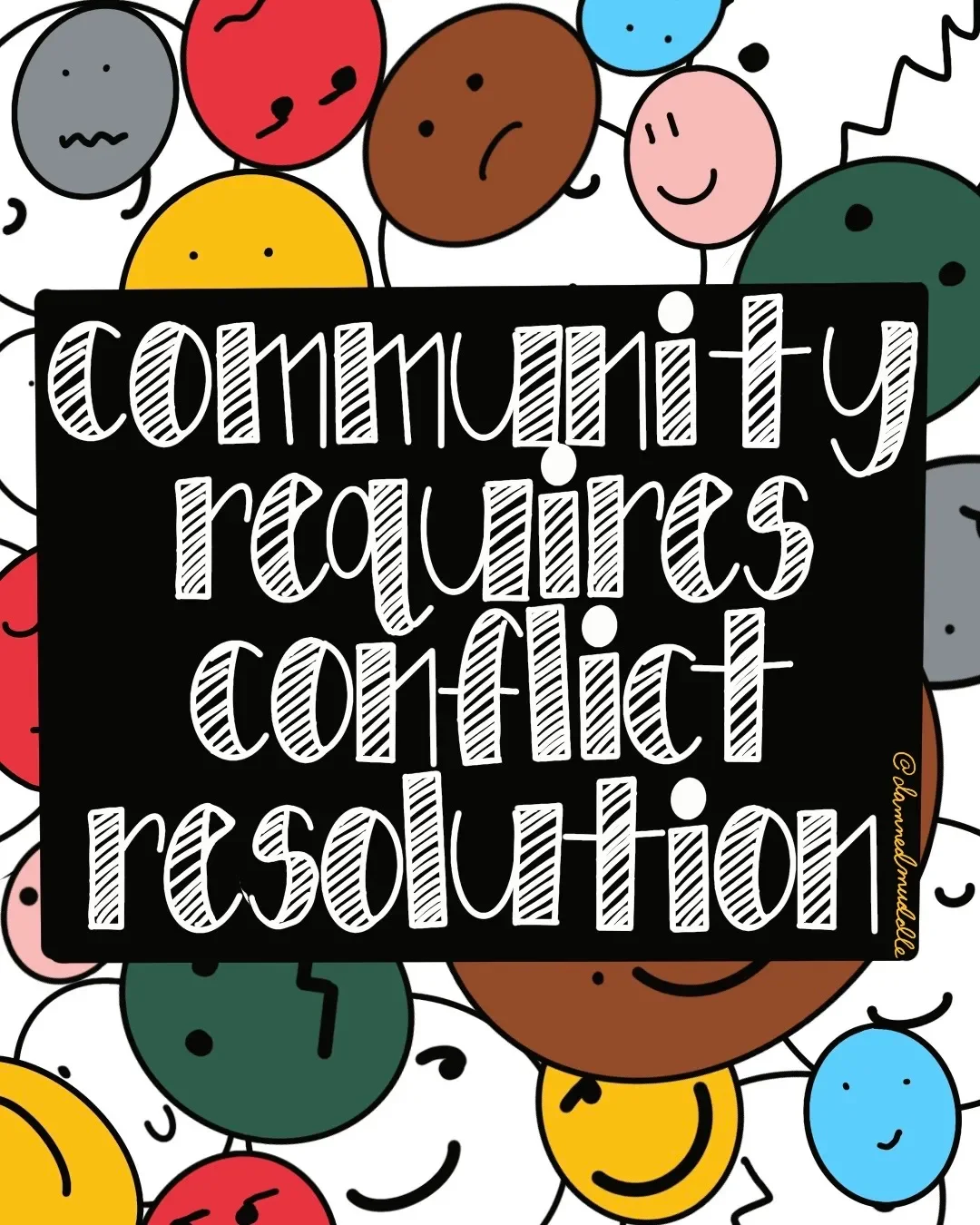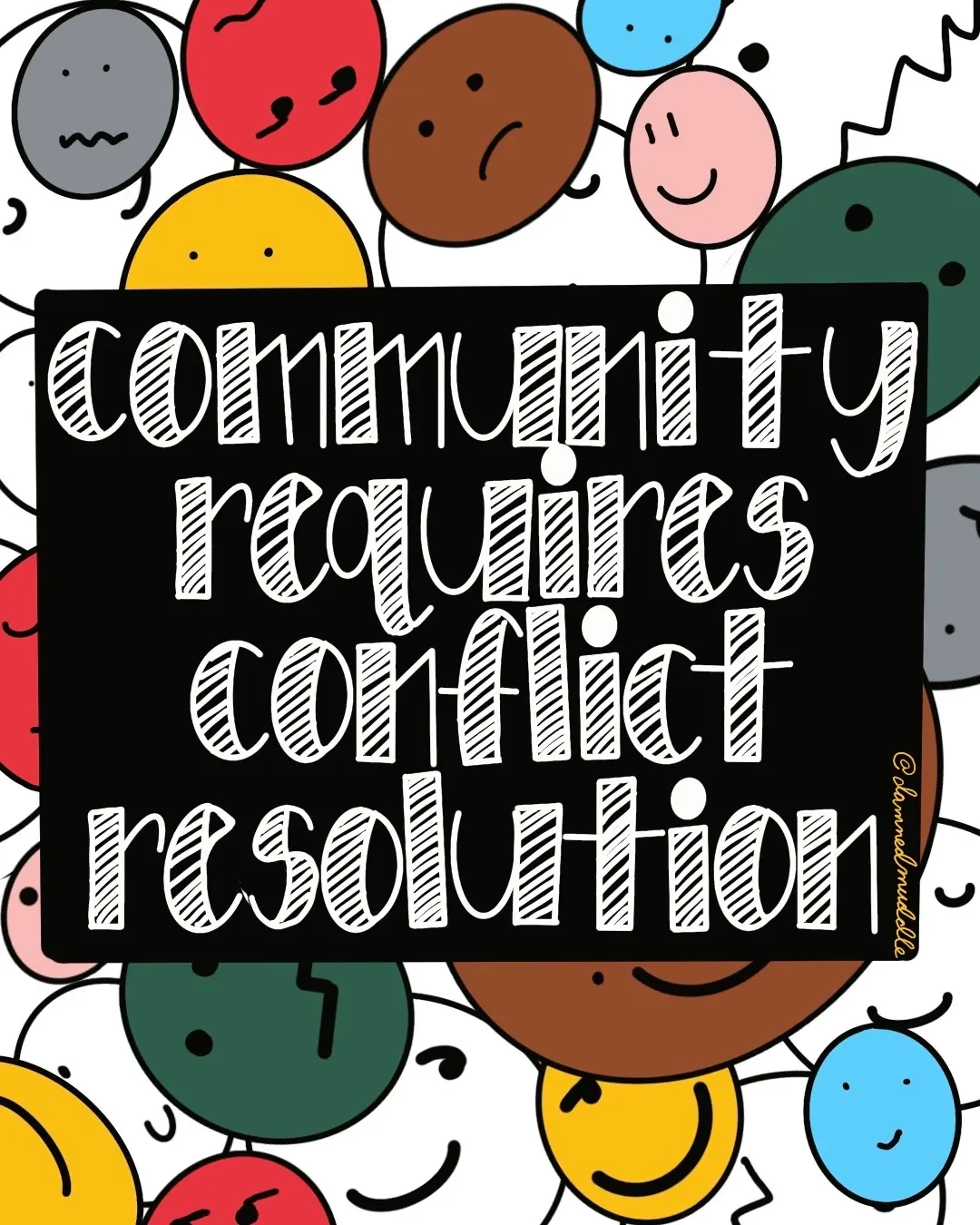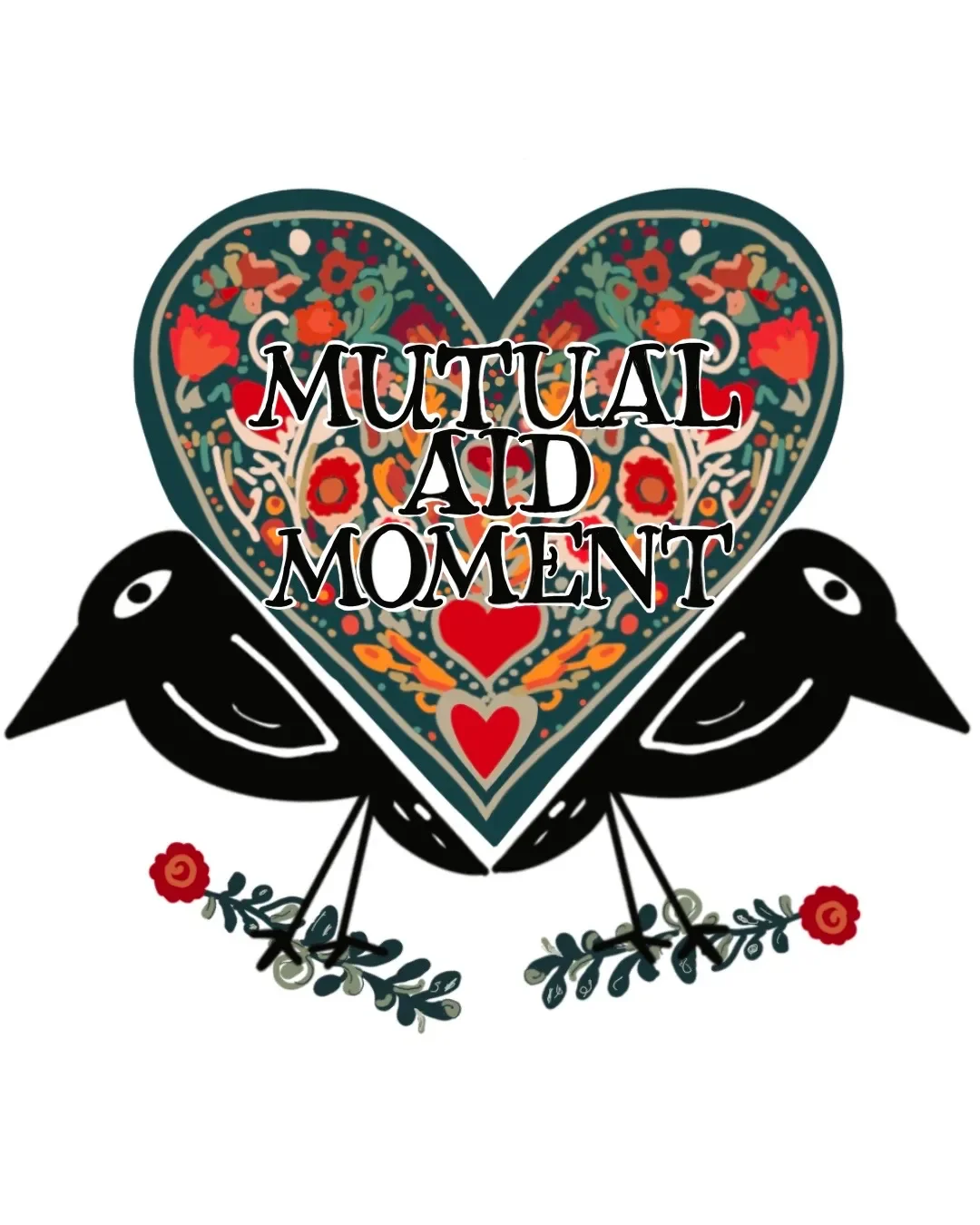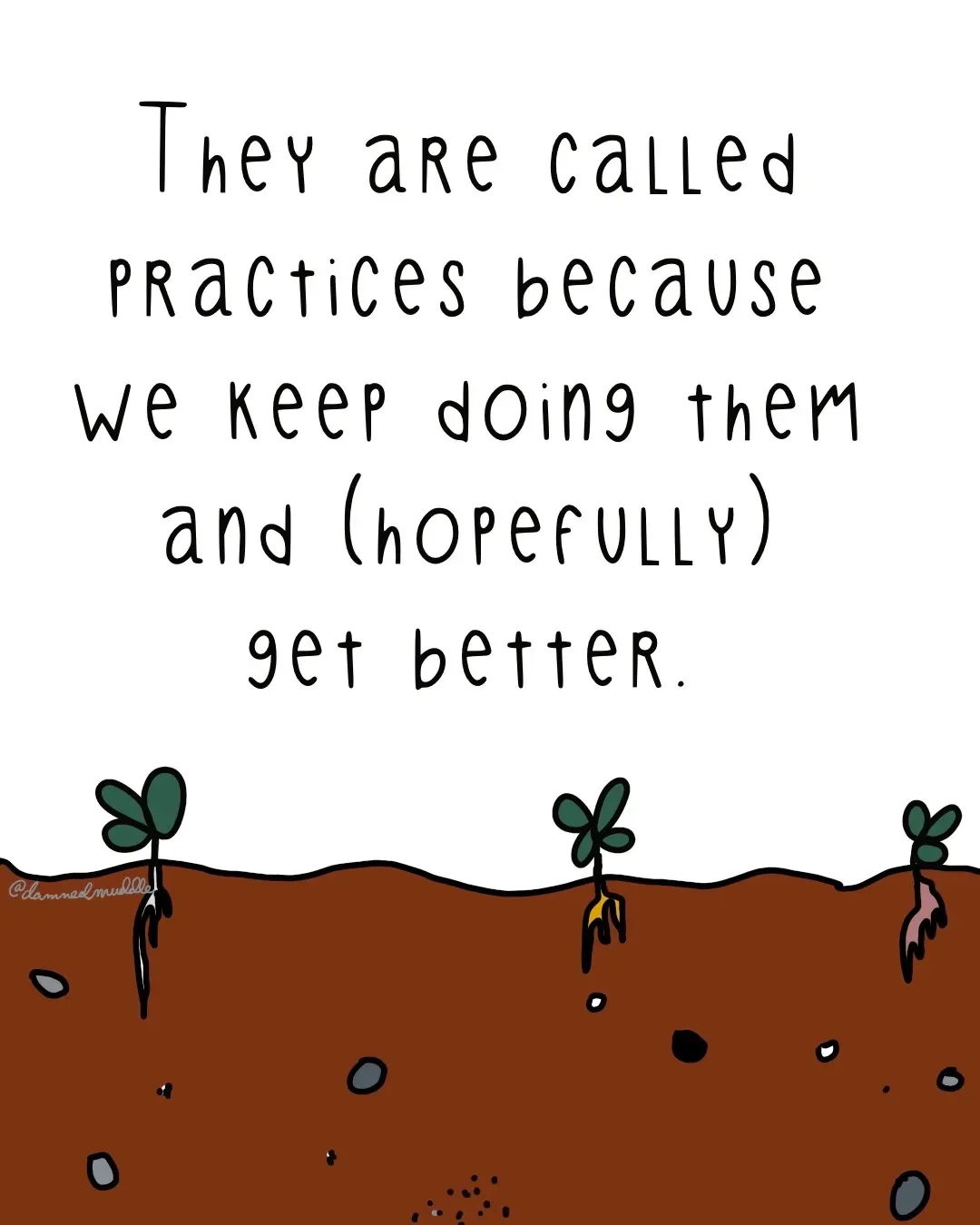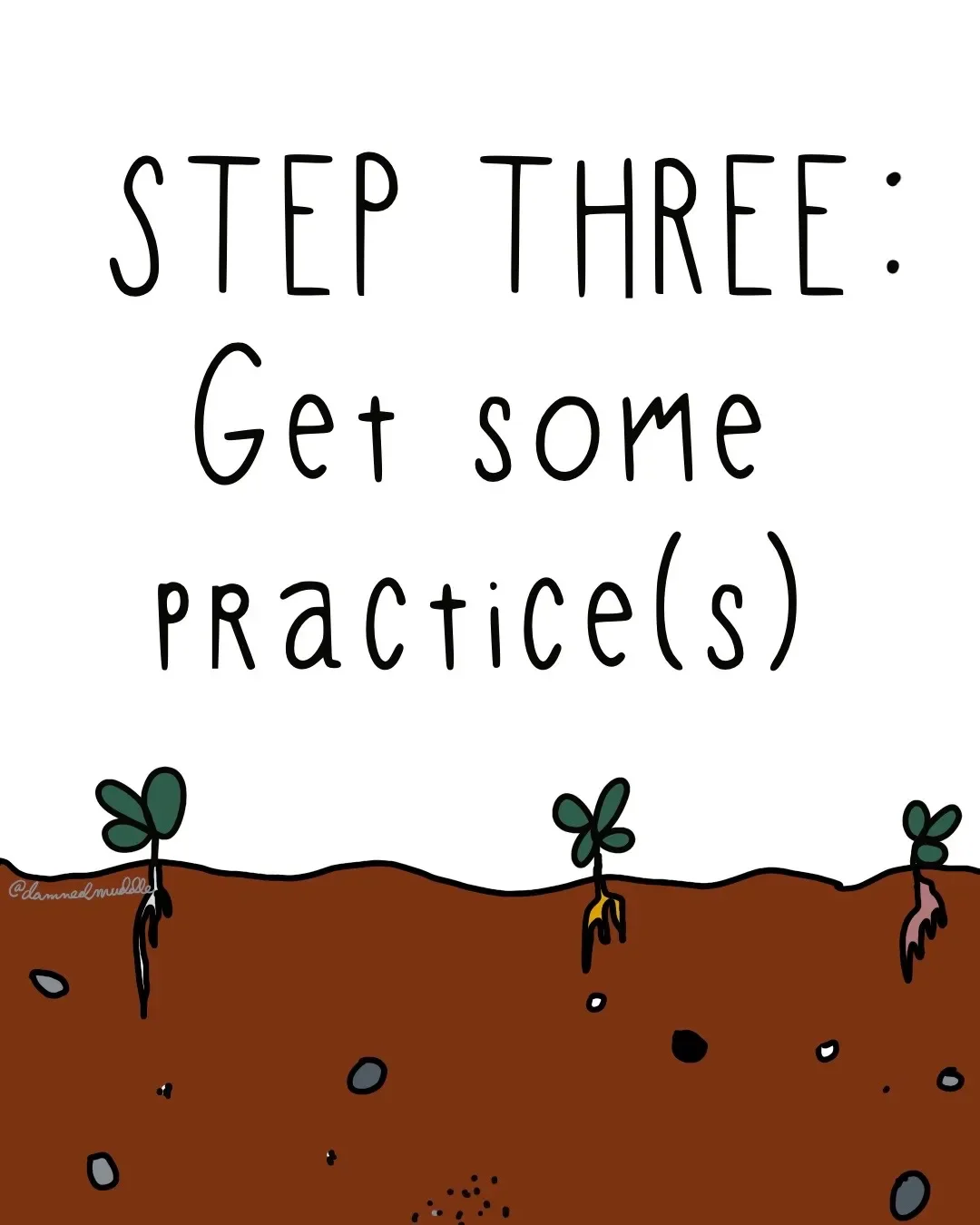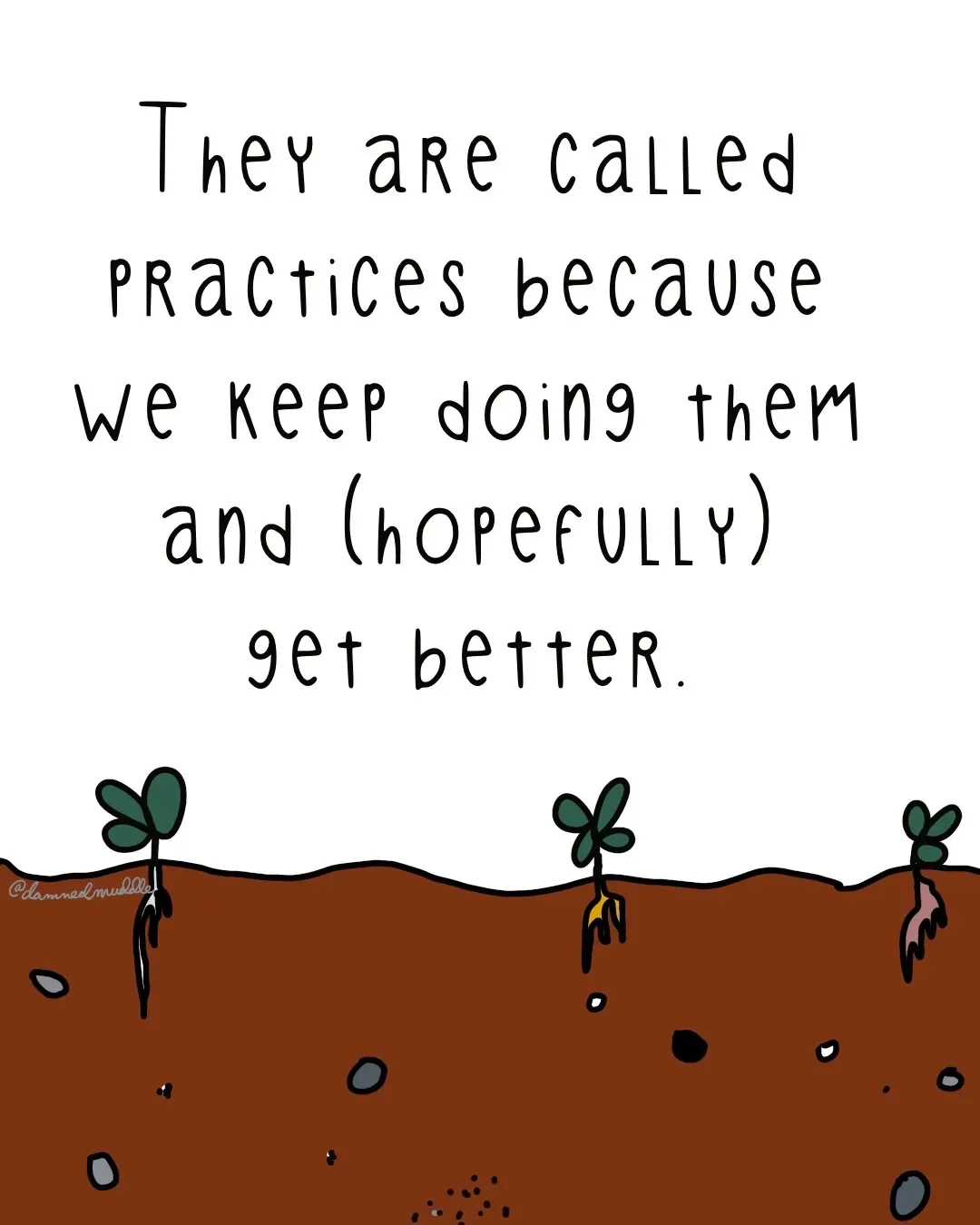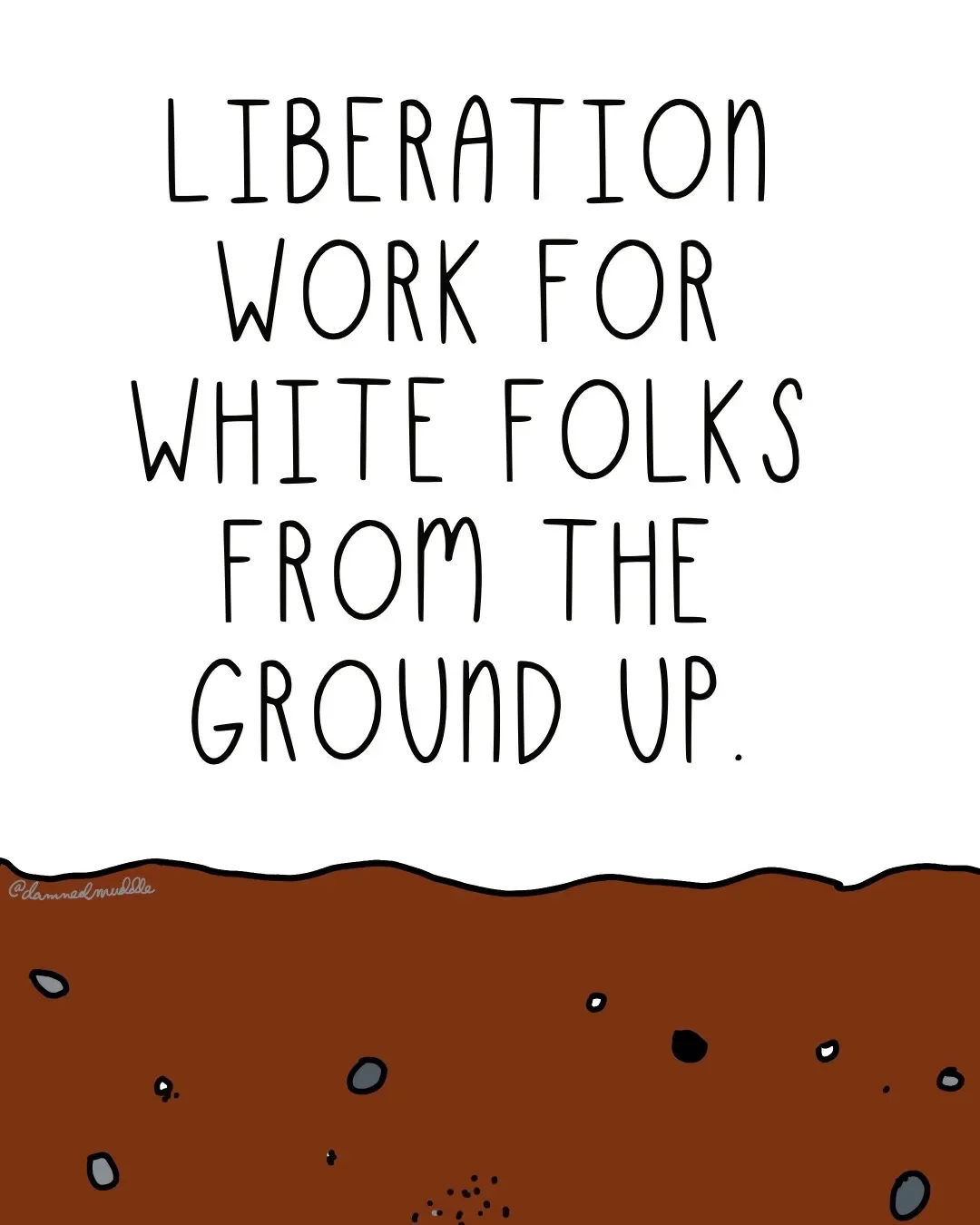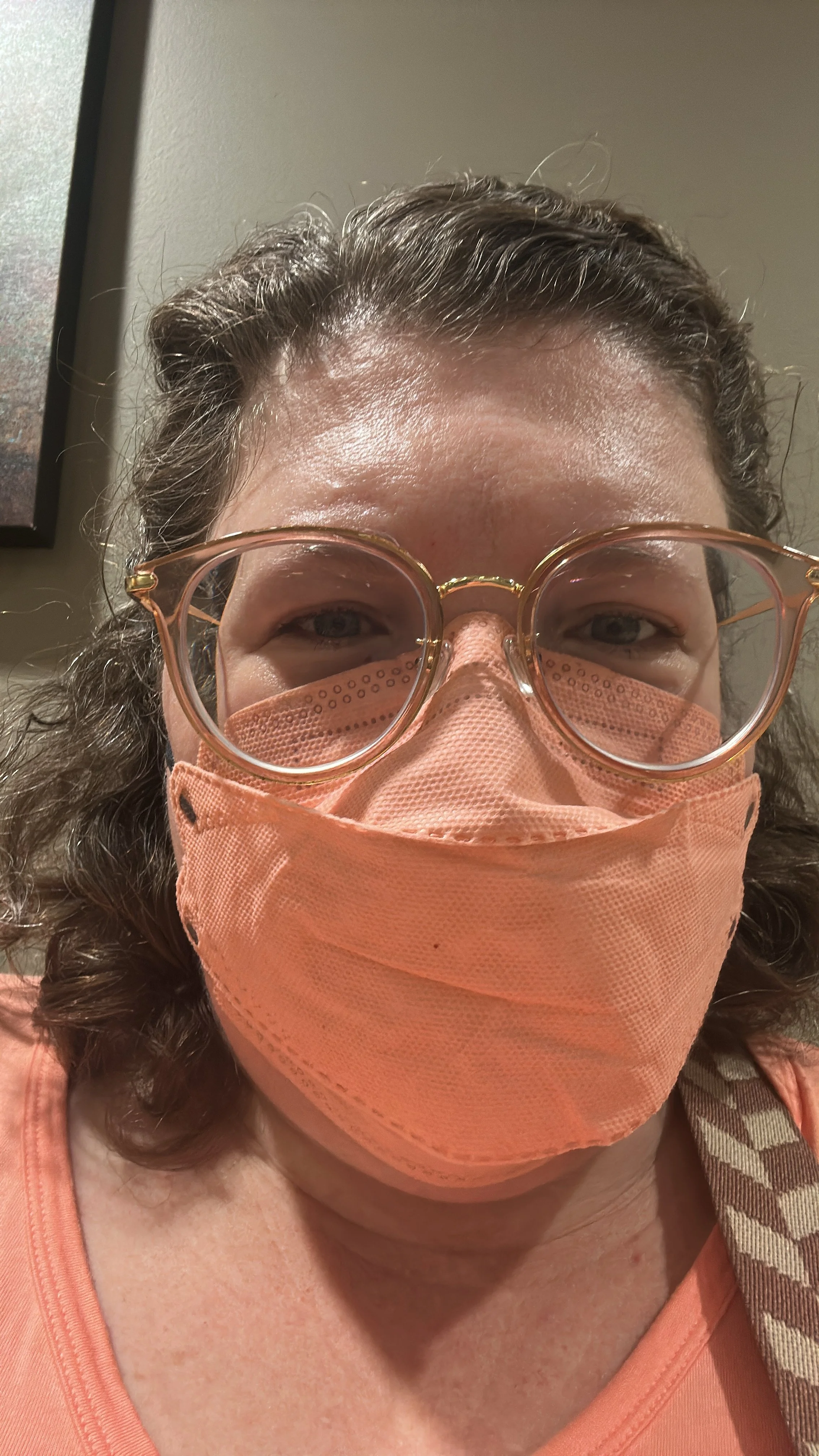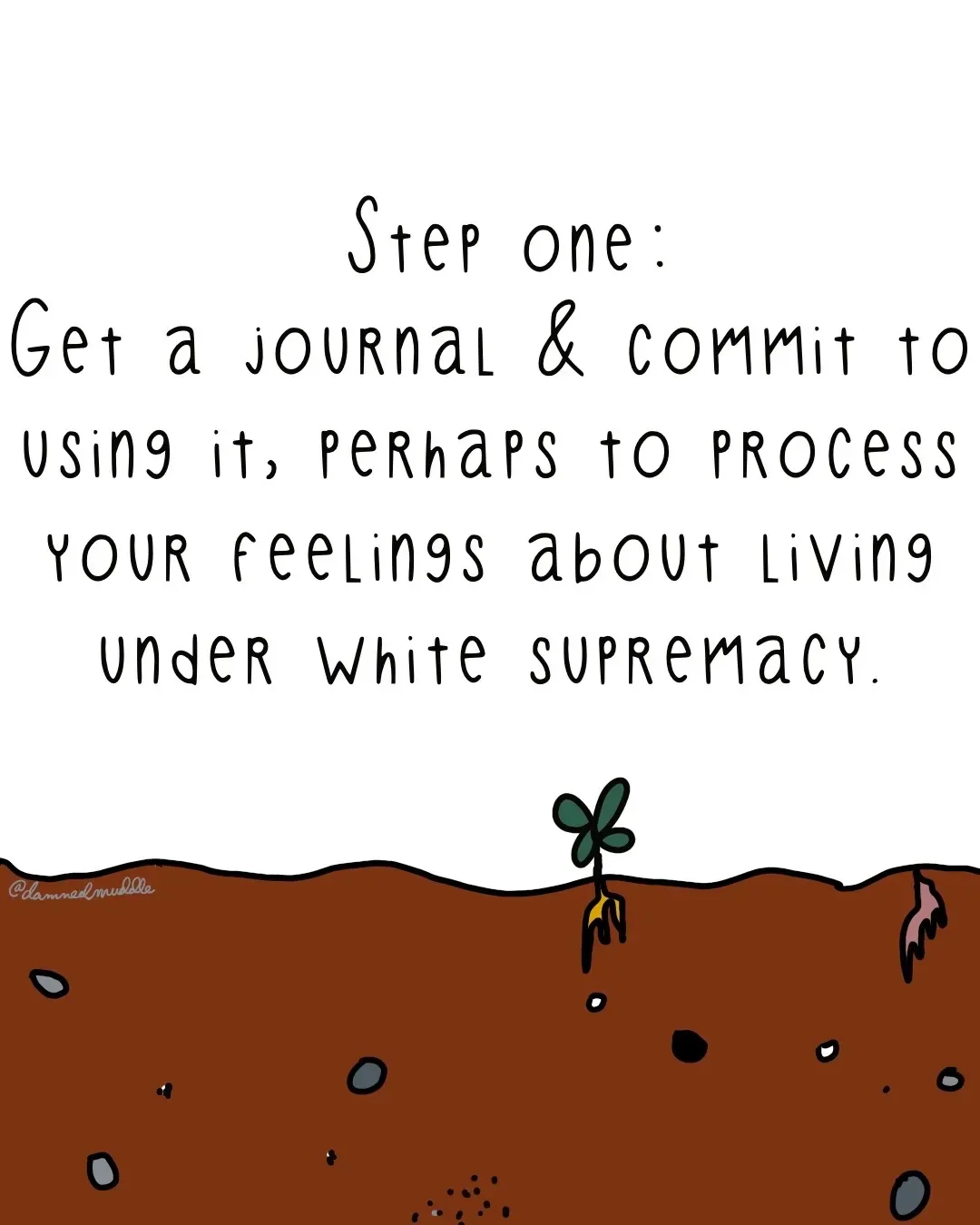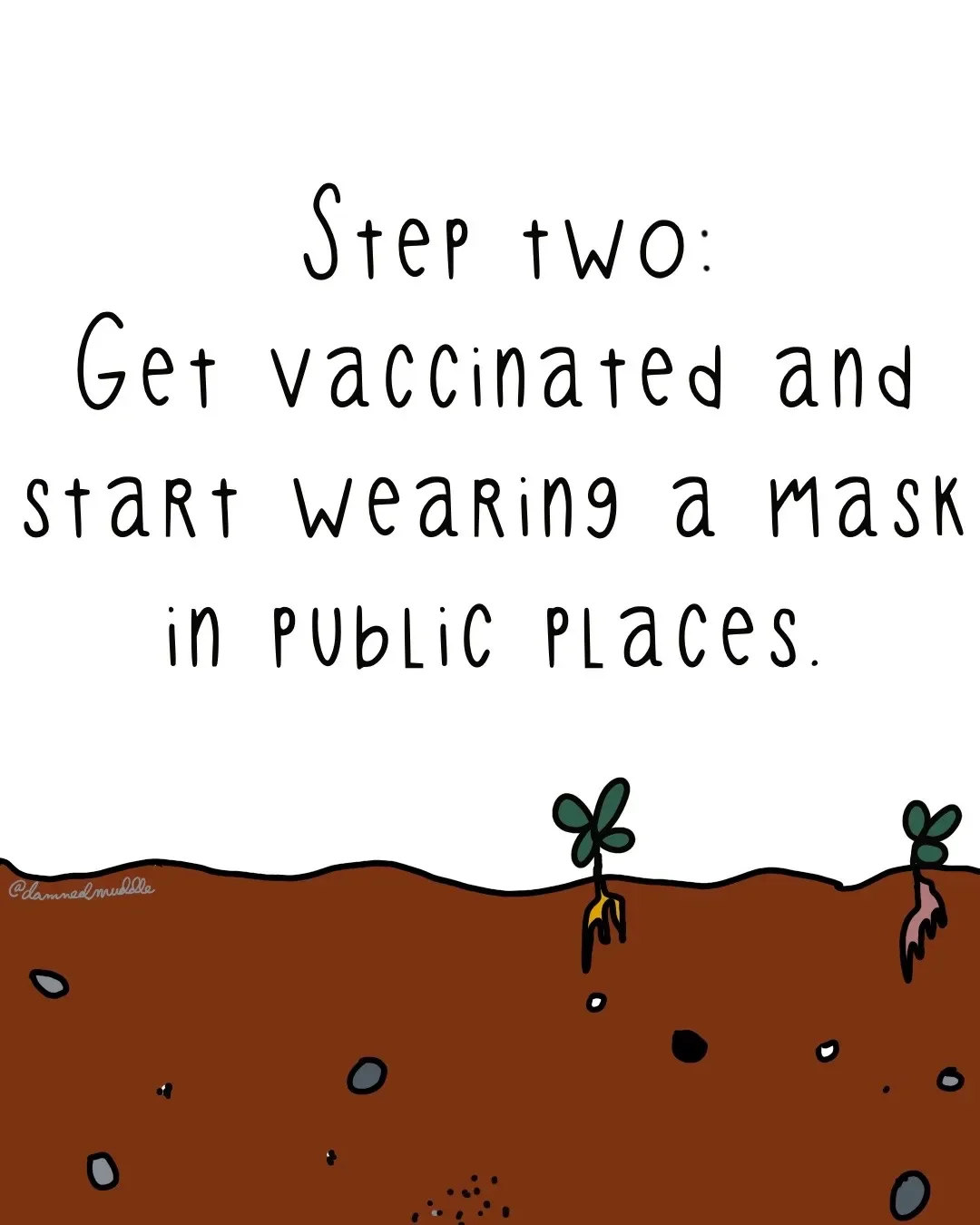Happy Black History Month: All of my 5 star reads from Black authors for the past 5 years
After seeing a thread about how Black people shouldn’t be responsible for reading recommendations during Black History Month, I compiled a list of all my 5 star reads by Black authors from the past 5 years.
Illustration of a border with red, yellow, and green lines on a black background with white hand lettering that reads, “Every 5 star read I’ve read by a Black author in the past 5 years”
Illustration of a border with red, yellow, and green lines on a black background with white hand lettering that reads, “Inspired by this post…” and a thread from @_;;litandlattes that reads, “CONTROVERSIAL FEBRUARY BOOK PSA: please do not ask your black & brown bookworm friends to do the work of finding diversified book lists for you in this year 2026 of the internet. It is NOT OUR JOB to do the work of finding books by non-white authors that you may or may not read beyond February. We have done enough. Thank you in advance.”
I read a thread that said that Black people aren’t responsible for giving white folks reading recommendations for Black History Month. In honor of that, I’ve put together almost all of my five star reads of the past 5 years by Black authors.
Fiction
“American War” by Omar El Akkad
“An Academy of Liars” by Alexis Henderson
“Bitter” by Akwaeke Emezi
“Dread Nation” by Justina Ireland
“Homegoing” by Yaa Gyasi
“Honey Girl” by Morgan Rogers
“Junie” by Erin Crosby Eckstine
“Legendborn” by Tracy Deonn
“Long Division” by Kiese Laymon
“Maame” by Jessica George
“My Sister, The Serial Killer” by Oyinkan Braithwaite
“Nightcrawling” by Leila Mottley
“PET” by Akwaeke Emezi
“Raybearer” by Jordan Ifueko
“Take My Hand” by Dolen Perkins-Valdez
“The Ballad of Jacquotte Delahaye” by Briony Cameron
“The Ballad of Perilous Graves” by Alex Jennings
“The Final Revival of Opal and Nev” by Dawnie Walton
“The Fraud” by Zadie Smith
“The Other Black Girl” by Zakiya Dalila Harris
“The Reformatory” by Tananarive Due
“The Underground Railroad” by Colton Whitehead
“Wild Women and the Blues” by Denny S. Bryce
Illustration of red, yellow, and green lines on a black background with pictures of book covers listed above.
Illustration of red, yellow, and green lines on a black background with pictures of book covers listed above.
Nonfiction
“1919” by Eve L. Ewing
“A Little Devil In America” by Hanif Abdurraqib
“Above Ground” by Clint Smith
“Becoming Abolitionists” by Derecka Purnell
“Call Us What We Carry” by Amanda Gorman
“Dyscalculia: A Love Story of Epic Miscalculation” by Camonghne Felix
“Hood Feminism” by Mikki Kendall
“How the Word is Passed” by Clint Smith
“How To Slowly Kill Yourelf and Others in America” by Kiese Laymon
“How We Show Up: Reclaiming Family, Friendship, and Community” by Mia Birdsong
“I’m Telling the Truth but I’m Lying” by Bassey Ikpi
“Inciting Joy” by Ross Gay
“No Name In the Street” by James Baldwin
“Punch Me Up To The Gods” by Brian Broome
“Read Until You Understand: The Profound Widom of Black Life and Literature” by Farah Griffin
“South to America” by Imani Perry
“The Humanity Archive” by Jermaine Fowler
“There Will Be No Miracles Here” by Casey Gerald
“They Were Her Property” by Stephanie E. Jones-Rogers
“This Here Flesh” by Cole Arthur Riley
“Wayward Lives, Beautiful Experiments” by Saidiya Hartman
“We Alive, Beloved” by Frederick Joseph
“We Refuse: A Forceful History of Black Resistance” by Kellie Carter Jackson
“Weightless: Making Space for My Resilient Body and Soul” by Evette Dionne
“What Doesn’t Kill You Makes You Blacker: A Memoir in Essays” by Damon Young
“Where Do We Go From Here: Chaos or Community?” by Martin Luther King Jr.
Illustration of red, yellow, and green lines on a black background with pictures of book covers nonfiction books by Black authors listed above
Illustration of red, yellow, and green lines on a black background with pictures of book covers nonfiction books by Black authors listed above
Illustration of red, yellow, and green lines on a black background with pictures of book covers nonfiction books by Black authors listed above
Have and loved any of these? Are any going on your TBR? I’d love to hear from you or connect with you on StoryGraph.
Happy reading!
A New Look for an Old Thing
Exploring a new look and slightly new direction for Damned Muddle
Illustration of snails and crabs in blues and their trails in green, brown, and purple
Last week I had a shingles breakout. Shingles is something I have been dealing with since high school occasionally and often shows up when I have a high degree of stress. As I learn more about myalgic encephalemyletis (ME) and shingles, I wonder if I’ve had it much longer than I suspect and it’s only recently become disabling enough to take note.
Anyway, I was in bed all week and it gave me a long time to think…and to thrift. One of the things I’ve been thinking about is the ways I have changed since beginning Damned Muddle many years ago. When I began I was just realizing I was autistic and queer. My kids were still young. I wasn’t yet dealing with physical disability on a regular basis.
Now I am largely confined to my bed, I use a wheelchair on a regular basis, I have gotten into service dog training, and I am trying to figure out how to live a meaningful, joyous life under that reality.
It makes sense that my interests and my space would shift over so much time. But I’ve struggled to move this space with it because I know how we autistics feel about change and I so appreciate and respect everyone who has joined me here.
That said, I am going to try. I am going to try to make this space somewhere everyone can still feel safe, but that I can also explore new parts of myself and share that with you.
The good news is, at my core I will always be about righteous justice and caring. I am a cancer rising with 5 planets in Libra…I couldn’t help it if I tried.
But I want to do that in ways that feel more me. Which brings me to thrifting. I LOVE thrifting. I always have.
I come by it naturally. My grandpa (who fought in WW2 and is still alive) used to have a basement FULL of stuff he picked up off the side of the road. He’d make it into garden art or always have the perfect thing someone needed for a project. My grandparents were depression era savvy through and through and it’s a lot of how my mom raised me.
I grew up hanging my clothes on the line, washing out plastic baggies, and buying (if we had to buy at all) as much as we could second hand. I still hang my clothes on the line or the drying rack in front of the fire and wash out my baggies, but disability took me away from thrifting for a long time.
As the boys have gotten older and I’ve started to adapt to the disabilities, I’ve found ways to get back into thrifting. Most of it is online due to my ME, but occassionally I get out to a couple local shops (NOT the Goodwill, iykyk).
Picture of a vintage wooden Thomas Piccone jewellery box with hand painted flowers
I’ve found things to help remodel the house, wear, and lately I am getting into vintage, antique and secondhand jewelry. It started because I love pretty things, but as I learned about the power of jewellery in uncertain times and its ability to empower women across cultures, I’ve really started collecting.
You’ll see me sharing more of these things as time goes on. I’m creating highlights on IG for thrifting and items I have for sale or take secondhand. I’ll still share about disability and social justice, but I’ll also share about the ways I am finding joy, and hope, and life as I practice them.
Ilustration of a blue shell with white hand lettering that reads, "Damned Muddle"
Illustration of a blue and white logo with a wavy border outside. On the inside there are illustrations of a book, tea, a dog, a jewel, scales, and a thrift tag. Words say, “Damned Muddle. Make. Notice. Share. Joy. Meaning. Love”
I’m also debuting a couple new logos/images to go along with the “rebranding.” These maintain the spirit of the wandering muddle while giving a nod to other parts of me like my hermit (crab) nature and very slow speed.
Thanks for being here. Thanks for staying here if you choose to.
Lots of love always.
Willo
2025 Reading Review
After reading over 200 books in 2025, I pick my favorite fiction and nonfiction book. I am also giving you my top 10 fiction and nonfiction picks with all the links to the books and offers.
This review features primarily diverse reads from authors of the global majority.
Illustration of a pile of colorful books with hand lettering on them that reads, “My Favorite Reads of 2025”
If you’ve been around a while you know I am a voracious reader. I always have been. In fact, as I began my autism self diagnosis journey and learned about hyperlexia, it was a major clue.
These days my reading is exclusively through audio books because of my disabilities. I check them out almost entirely from the library using the Libby app, but I also have a subscription to Libro.fm.
What I read in a year and when is based almost entirely upon what comes up from hold at the library. The only time I deviate from that is if I have to get something read for one of the three book clubs which I have joined.
That said, I make an effort to books on hold that are by authors of the global majority because I find that the books are better and it aligns with my values and I do not knowingly read anything by someone who does not align with my values.
The books in my review aren’t necessarily published this year, this is just the year I read them. I like to pick a favorite in both fiction and nonfiction and a top 10 in each. I read about 75% fiction 25% nonfiction every year.
Favorite reads of 2025:
Picture of the cover of “Against the Loveless World” by Susan Abulhawa with orange, pink, and navy quilt like shapes in the background.
Fiction: “Against the Loveless World” by Susan Abulhawa
Nonfiction: “A Little Devil in America” by Hanif Abdurraqib
My top 10 fiction books of 2025 (in no particular order):
“American War” by Omar El Akkad
“Enter Ghost” by Isabella Hammad
“The Ballad of Jacquotte Delahaye” by Briony Cameron
“Swordheart” by T. Kingfisher
“Mornings in Jenin” by Susan Abulhawa
“The Buccaneers” by Edith Wharton
Illustration of an open book with a thread of my top 10 fiction reads of 2025 (listed above)
My top 10 nonfiction books of 2025 (in no particular order):
“We Alive, Beloved” by Frederick Joseph
“A Mind Spread Out On the Ground” by Alicia Elliott
“Against Technoableism: Rethinking Who Needs Improvement” by Ashley Shew
“We Refuse: A Forceful History of Black Resistance” by Kellie Carter Jackson
“Slow Noodles” by Chantha Nguon
“Wayward Lives, Beautiful Experiments” by Saidiya Hartman
“We Could Have Been Friends, My Father and I” by Raja Shedhadeh
Illustration of an open book with a thread about my top 10 nonfiction reads of 2025 (listed above)
As always, you can connect with me on Storygraph, where I track and review all of my reads all year long.
I’d love to hear what your favorite reads of the year were.
Illustration of an open book with my StoryGraph graphic showing number of books read, pages read, first and last reads, etc…
Mutual Aid Wrap Up
Mutual aid is a practice. This blog discusses why mutual aid is an important practice to engage in as a family, some ways to do so, and offers templates for wrapping up a mutual aid summary at the end of the year.
Illustration of two arms holding hands on a red background over a pink, green, and white bow. Hand written lettering reads, “Mutual Aid Wrap-Up 2025”
Mutual aid is a practice. Whether we’re giving it, sharing it, receiving it, or all three; it’s meant to be an ongoing activity incorporated into our lives on a regular basis.
One of the best things parents can do is make this a family practice so that their kids have an understanding of mutual aid.
When my kids were younger we did this in very hands on, practical ways. As part of our advent calendar each year we included activities like paying off someone’s layaway, going out to eat and leaving an extra big tip, or taking all our gently used and outgrown winter clothing to the homeless shelter. We’d also include one gift each year that was a gift to someone else.
As my kids have grown, including them in everyday mutual aid practices is more challenging, but I still want them to understand it’s part of the family practice. That’s why this year I decided to do a “Mutual Aid Wrap-Up” to share with them about what we gave to this year.
Illustration of a heart, gingerbread house, dove, candy cane, and present with handwritten text about how much mutual aid was given to each cause (housing, genocide, food, etc…)
Illustration of a heart, gingerbread house, dove, candy cane, and present with handwritten text about how much mutual aid was given to each cause (housing, genocide, food, etc…) with example numbers.
I am including the template here in case others want to use it. I’ve included it with both blank spaces and example numbers. These are not my family’s numbers. Those are not public because our mutual aid practice isn’t about recognition.
Please feel free to adapt this in any way that works for you and your family (you could do days shared instead of gifts or how many people helped you if you were requesting mutual aid this year) and thank you for having a mutual aid practice!
Wheelchair review
My youngest son is a senior and one thing that was very important to me was being able to see his last cross country season. Cross country courses rarely have paved paths and when they do, it means I won’t necessarily be placed where needed to see the action. I needed an all terrain chair with a very high weight limit. Many mobility devices have weight limits that end at 250lbs or lower.
The Robooter E60 Pro arrived here in January and I’ve been practicing with it ever since. At first it was rough. One of the challenges with this chair (not sure if it’s all electrical chairs) is that I need the speed set higher in order to turn well, especially on carpeting. Because it’s annoying to constantly switch between speeds, that means I almost always have my speed set at the highest (5) which works almost always but can get going a little fast at times and it was an adjustment to learn to ease into the stop.
Illustration of a Robooter Pro 60 electric wheelchair with handlettering that reads, "Wheelchair review as an ambulatory every day user."
If you’ve been watching my stories, you probably know I recently traveled with my wheelchair for the first time. Now that I’ve put this chair through just about everything, I am ready to share a thorough review.
I got my wheelchair about 8 months ago because my disabilities have been worsening consistently to the point where I am using a mobility aid every day. My first experience using a wheelchair was three years ago when traveling to Disney with my kids’ band trip. After trying the first two days without any aids and being unable to sleep because of the joint pain, we rented a manual which my husband pushed me in the rest of the days in the park.
The following summer we went on a cruise and while I walked throughout that trip, it was a struggle. I definitely didn’t go as many places as I had hoped because I was having trouble standing and walking for long periods of time. On the return trip I utilized the airport’s wheelchair services because my body was so worn down by that point.
That fall we traveled to Montreal and I realized just how much my inability to stand and walk long distances was affecting our experiences. After that we stopped traveling for a while because I knew we needed some time to come up with solutions that worked.
A lot of research went into the purchase of this wheelchair because it is a significant cost and because I needed very specific things from its use. I own a manual wheelchair with motorized attachment and had hoped that would work for my needs, but found it unable to handle most surfaces.
My youngest son is a senior and one thing that was very important to me was being able to see his last cross country season. Cross country courses rarely have paved paths and when they do, it means I won’t necessarily be placed where needed to see the action. I needed an all terrain chair with a very high weight limit. Many mobility devices have weight limits that end at 250lbs or lower.
The Robooter E60 Pro arrived here in January and I’ve been practicing with it ever since. At first it was rough. One of the challenges with this chair (not sure if it’s all electrical chairs) is that I need the speed set higher in order to turn well, especially on carpeting. Because it’s annoying to constantly switch between speeds, that means I almost always have my speed set at the highest (5) which works almost always but can get going a little fast at times and it was an adjustment to learn to ease into the stop.
Because of this (and my lack of spatial awareness) I broke off my first cup holder/phone attachment in just a couple days. I have gotten better in time and have made compromises. My home has a very open living room/kitchen area, but everything else is a tight squeeze. For this reason , I use the chair a lot in the main area and get up and walk down the hall because I still have that privilege/ability.
Picture of an electric wheelchair at a cross country meet
This week I got to use the chair at its first cross country meet. It was a good challenge because it rained for the first time in about a month that day. Soft grass and gravel is still a challenge even with the all terrain. The softer the turf, the harder steering becomes. But it handled the course without any trouble and allowed me to see much more of the race than I have ever been able to see walking and (almost) keep up with my husband who runs between points on the course.
The Robooter E60 Pro is built with omnidirectional front wheels which allow it to turn basically in place and handle more terrain. The downfall is that they don’t have any of their own power/traction so if one of those wheels gets in a groove or I don’t have the chair aligned correctly, controlling it and going where I want gets much more difficult.
The other challenge would come with any chair and that’s the accessibility of places. I live in a small village and am one of the only people I have seen regularly using a wheelchair. None of the businesses have automatic doors and going in and out would be near impossible without someone to help with the door.
Picture of a white and black robooter pro 60a next to a mint green suitcase at an airport
We’ve also been able to thoroughly test the folding and traveling capabilities. The nice thing about my chair is that it folds up and can be carried much like a two wheel suitcase. The challenging thing is that it weighs 83lbs. While I have managed to lift that on my own, it’s obviously a challenge so my partner does it most of the time.
My youngest son is a senior and one thing that was very important to me was being able to see his last cross country season. Cross country courses rarely have paved paths and when they do, it means I won’t necessarily be placed where needed to see the action. I needed an all terrain chair with a very high weight limit. Many mobility devices have weight limits that end at 250lbs or lower.
The Robooter E60 Pro arrived here in January and I’ve been practicing with it ever since. At first it was rough. One of the challenges with this chair (not sure if it’s all electrical chairs) is that I need the speed set higher in order to turn well, especially on carpeting. Because it’s annoying to constantly switch between speeds, that means I almost always have my speed set at the highest (5) which works almost always but can get going a little fast at times and it was an adjustment to learn to ease into the stop. was really anxious about trying air travel for the first time. There are countless horror stories about airlines breaking the chairs. I flew Delta and called ahead of time to tell them I was traveling with a wheelchair.
I was asked the following by a nice older woman named Ethel:
Wet or dry battery
How much does it weigh with and without battery
Dimensions both folded and unfolded
Whether or not I can walk without it or need transport to my seat (I can)
I was then told I just drive it up to the plane and hand it off. If I had tried to do this there probably would have been difficulties.
What we actually did was take pictures of the wheelchair from all angles before the trip, label the wheelchair with bright masking tape and a sharpie where to grip, pull, etc…, and print off a form with most of this info and talk to the gate agent each time before the flight (note: the gate agent for your flight won’t be there until about an hour before) and they attached said sheet and a disability placard to the chair and instructed me once again to pre-board and just take it up to the plane and hand it off.
Even this looked different on the two different trips to and from my destination. On the first they announced pre-boarding and the person handling my wheelchair introduced himself to us. I informed him we would collapse it for him and we had labeled all the parts, but that it was very heavy.
I also removed my joystick cover and put it in my carry on, because I thought if anything were to come off and get lost, it would be that. When we got to our destination the chair was there waiting as expected (on the later side of unloading), but to our surprise it was unfolded. So we learned to also label/explain how to collapse and unfold the chair.
On the return trip when I introduced myself to the gate agent and explained I would be traveling with the wheelchair and still had all of the paperwork attached from before (we were only at our destination a couple of days during which we didn’t use the chair a whole lot). Unlike the first trip, the gate agent told me to take out the battery (because it’s lithium ion) and take it on the plane with us. I explained to her that we hadn’t on the first trip and she said we always should and made it seem very important.
This is why I was worried when my husband forgot the battery and left it in the chair on the return flight anyway. As I freaked out about blowing up our plane, he explained that if it were that important, they would have ensured it happened. He had a point.
picture of a collapsed robooter pro 60a electric wheelchair with labels for flying on an airplane and a gold golf ball on the handle
Just like before, the wheelchair was presented unfolded at the gate without any damage. In fact, the airline did great with my wheelchair, it was me that seemed to have caused it problems in my effort to find a joystick option that works for me ergonomically. Since I want to save you from my mistakes I will tell you, don’t use a golf ball.
While golf balls are great ergonomically, I think they are too heavy and mess with the joystick mechanism enough to upset the electronics in the chair, at least I think this is what happened on my trip. Because my golf ball was a home solution and not properly done, I often had to mess with it to get it on right. By the end of the trip, all that messing had upset the electronics enough that I was often getting an error message when I attempted to turn it on. This is not what you want when trying to go through security.
After we got home I did some research I probably should have done beforehand and learned that there are creators making custom joystick covers. Not only did I get myself a lighter round one (3D printed), but I found a shop where I can order covers for different holidays and other whimsy.
picture of holiday themed joystick covers for an electric wheelchair and a dog
These aren’t cheap and therefore aren’t an option for many disabled people, despite how much they may need something more ergonomic and deserve something more fun.
Of course this is just another disability tax in a long line of things we need to pay more for to exhibit comfortably in the world. We encountered a few more on our trip too.
It was my first time using a bus or shuttle with my wheelchair. We decided to try it with me on the chair so I could have some experience with it since much of this trip was also about experimenting with travel at this level of ability.
Getting on the bus and getting properly positioned was tricky for me (as were elevators and hotel doorways), but eventually I managed. What we weren’t prepared for was the shuttle driving asking us (but seemingly no one else) for a tip as we attempted to depart. I am not opposed to tipping everyone, but my husband pointed out that this felt like a fee for being disabled. On the return trip we chose to fold the wheelchair and place it on a luggage rack.
I’d love to hear how you handle this when traveling with a wheelchair or what your take is on it as a disabled person.
Overall I am really happy with my chair choice given my lifestyle. I don’t know that I would recommend this version for someone living more independently. A more lightweight version easier for lifting and handling on your own might be the way to go if you don’t have regular assistance with that kind of thing.
I am not familiar with other chairs, but I like the way the Robooter is designed to be pretty self contained and sturdy. This isn’t to say that damage can’t be done to it (as I proved with my poor choice of joystick handle), but that I have growing confidence with travel now, especially if I can hand it off to others already collapsed.
We don’t love air travel and will probably avoid it in the future where possible in favor of road trips. While the chair can fold and fit in the trunk of a car, the space it takes up isn’t insignificant. This means we’ll be hit with more disability tax on our next vehicle as we try to find something to fit the chair, service dog kennel, and luggage.
There’s nothing affordable or easy about being disabled, but having an electric wheelchair has greatly enhanced my ability to participate in more activities, for a longer period of time, with less recovery time needed. I just wish the world were more accessible to us and everyone had access to whatever mobility aids would most enhance their life.
I would love to answer any questions if you have them. Just throw them below or shoot me an email.
Sirens
A lot of people seem to have misunderstood Sirens on Netflix. Here we discuss the nuance of the three main female characters, Devon, Simone, and Kiki and what the show is trying to say about how women survive patriarchy.
I wrote a thread on Sirens immediately after finishing it that stirred up a lot of good conversation and had us muddling it through differently. Those thoughts deserve a more concrete space (with less spelling errors), so I am going to share and expand upon them here. The original thread holds a lot of valuable input from women about what they saw in the show so I’d encourage you to check that out as well.
(Spoilers ahead)
The sirens in mythology are monstrous sea women perched upon rocks luring sailors to their death & destruction.
We know patriarchy is strong because this myth persists despite the well known fact that men chasing adventure do daring & destructive things all the time of their own accord. Those things often involve beautiful women and get blamed on them, but women aren’t the monsters men make them out to be, they just get caught in men’s dangerous games. That’s the point of Sirens.
It was cleverly marketed to conceal this fact, portraying Julianne Moore’s character, Michaela (KiKi) as a rich, powerful, seductress controlling everyone around her and her billionaire old money husband (Peter, played by Kevin Bacon) as the friendly, aloof, along for the ride guy.
What we find out as the show goes on is what we should have known all along: he’s causing the chaos in his life and using the women he’s surrounded by to blame, fix it, or keep him entertained along the way. So is almost every male character in the show.
The sob story Peter has constructed (and maybe has even grown to believe himself) is that Kiki kept him from his kids. What we find out later as he’s about to make the same mistake again is that his kids chose to distance themselves because he threw their mom over for another woman. Peter eventually gets forgiveness from his kids while Kiki is sent away so he can do what he wants while constructing more myths about monstrous women.
The parallel story line, that of Simone, her sister, Devon, and the men in their lives shows the same thing.
Simone & Devon have both been traumatized because their dad pulled a very similar patriarchal move in their lives. He refused to get his mentally ill wife the help she needed, neglected her when she needed care, ultimately causing devastation to his whole family and requiring another woman (Devon) to swoop in and save everyone, totally ignoring the cost to her.
Simone and Devon deal with this trauma in different ways. Simone chooses the more acceptable way of presenting picture perfect while Devon is outcast as a drunk and a slut. We judge Devon for her bad choices in comparison to Simone. At the end when Simone keeps choosing the picture perfect over the ethically sound we get to switch and judge her in comparison to Devon.
Either way, the women watching the show are pushed to judge Kiki, Devon, and Simone even though they are being used as pawns by hapless men who want adventure without reality or consequences…much like sailors in uncharted waters .
The show makes this abundantly clear in often hilarious ways, like three men chasing Devon down a beach while all she wants to do is help her sister. Or Devon’s rich boyfriend drunkenly throwing himself off a cliff after she rejects his proposal and blaming her.
And it repeatedly asks us to see the women as only having bad choices they’ve been given in the game of patriarchy, like at the end when Kiki tells Devon that Simone isn’t a monster.
If you didn’t understand Simone’s final decision, what does that say about you?
Yes, we all wanted Simone to pick the women. A better question than, “ why didn’t Simone pick her sister and Kiki?” Would be, Is Simone at all set up to make that decision given the way she’s been treated in her her life so far?
And why does it matter at all what one character or another chose on a five episode Netflix series? It matters because these characters are representative of women under the patriarchy and the choices we make when all the options we have are bad. Your inability to empathise with Simone may not matter, but your ability to empathise with your neighbour down the street who grew up in the foster care system does.
The fact that so many people (especially white men) are missing the point of Sirens isn’t at all surprising.
It is disappointing though. In a world full of remakes and hundreds of action hero movies this was unique, beautiful, and really well executed.
We need more shows like this and we likely won’t get them cause men are hell bent on crashing themselves against the cliffs, blaming women, and convincing women to judge and blame each other.
IG vs. Reality
As a disabled mom and reactiive dog owner it’s not alway easy to make content, but I’m trying.
I’ve been (relatively) absent from social media lately.
My life is at a weird transition point that is taking years.
Most of this has to do with my worsening disability. If you’re a regular Muddler, you may know that I deal with autism, POTS (Postural Orthostatic Tachycardia Syndrome), and EDS (Ehlers Danlos Syndrome). But lately my biggest issue has been ME (Myalgic Encephalomyelitis).
Like many who deal with ME, I am finding every day tasks (showering, cleaning, surviving) difficult and additional tasks (posting or “working” in any capacity, traveling, maintaining community and relationships) almost impossible. I recently saw a study (thanks to brilliant @jendomsick and @sunrequiem who post great resources on this stuff) that says people with ME have a worse quality of life than those with heart & lung disease or cancer. That definitely feels true to me.
I am privileged to have a financial support system and caregiver in my partner. I have access to aids like a power wheelchair, adjustable bed, and service dog that many people do not (but everyone should). While they all help improve my quality of life, none of them are able to get me even relatively close to the level of function I had just a few short years ago.
In addition to all of that, I am still a mom. While my boys are both almost adults and mostly tackling their own adventures, it’s important to me to still be a support system to them.
This is how I discovered that parenting young adult children can be challenging. My oldest (Tucker, almost 20) has been home for the past month between the end of his second year of university and the beginning of his first internship across the country. This means him and his stuff are in a semipermanent state of being scattered across my home in preparation for a 2 month stint in Mississippi, followed by less than a month here, and another move to his apartment at school…all of which come equipped with different amenities and require a different packing list.
The mental state which we find ourselves in is a similar shambles. Armed with an ADHD diagnosis and prescription, but still having difficulty staying on top of filling the RX, Tucker’s executive functioning can struggle at times. Plus he’s used to living on his own or with other young men, which are a different set of living standards than I like to keep in my home. It’s all a mess.
It’s a mess I wouldn’t trade, but it presents an additional challenge.
Finally, we still have George, the big reactive dog. While he continues to do at home service tasks every day and make slow progress around some of his reactivity, he isn’t the worry free public access dog I was hoping for and finding a care team (vet and sitters) has been an epic challenge we haven’t completed yet.
I am really hoping we will keep making (VERY slow) progress in all these areas and I will eventually be able to post more. But for now, the struggles of every day life as a disabled person who cares about other complicated creatures is taking everything I’ve got.
Community requires conflict resolution
Conflict resolution is a key element of community. No community is going to consist only of people who we all get along and work well with. Inevitably we will need to do some conflict resolution at some point.
Almost all of us are lacking conflict resolution skills because that’s how we are socialized in capitalist empires. Capitalism thrives on hyper individualism and has a vested interest in dividing us as much as possible.
We will all have to do the work of unlearning this hyperindividualism and learning how to work with others in conflict resolution.
This will probably look very different in real life versus online spaces.
illustration of colorful faces with hand lettering that reads, "communuty requires conflict resolution"
As we slide further and further into fascism, many more of us are recognizing the importance of community.
Ideally, we would all be part of strong, accepting, accessible communities in both online and real life spaces. I hope that’s what we are all working towards. I’ve shared here in the past some ways to curate community and keep it safe for everyone.
Unfortunately for many disabled people, real life community is largely inaccessible (especially with most people, including leftists, refusing to mask), so we often rely more on digital spaces.
Conflict resolution is a key element of community. No community is going to consist only of people who we all get along and work well with. Inevitably we will need to do some conflict resolution at some point.
Almost all of us are lacking conflict resolution skills because that’s how we are socialized in capitalist empires. Capitalism thrives on hyper individualism and has a vested interest in dividing us as much as possible.
We will all have to do the work of unlearning this hyperindividualism and learning how to work with others in conflict resolution.
This will probably look very different in real life versus online spaces.
In real life most of us understand that speaking to someone one on one to discuss an issue is probably the most effective way to begin. Not only do we want to ensure that the other person is aware of the issue and has a chance to address it, but most of us don’t love airing dirty laundry in public, ours or someone else’s.
Online, people often begin publicly. Maybe this is because that’s how most of our communication is with community members in online spaces. Maybe it’s because the culture online is different. But the people behind the screens are still people deserving of respect, relationship, and communication.
Wherever you’re building community and relationships, please:
Make sure you are making it inclusive, safe, and accessible.
Engage in a conflict resolution practice. (Practice means its ongoing and we don’t always get it right but we keep trying)
Treat relationships and people as if they matter, because they do. As Kristianna says, relationship is our most abundant resource.
Another important thing to note is that some of the conflict resolution that may be required could be internal. Some of us are naturally better or raised to be better at conflict resolution and existing in community than others. Folks who are taught at a young age that something is wrong with them often struggle to grow up and exist in relationship with others.
This is where a lot of the shadow work we discussed before comes in. If we recognize we are the people struggling to be in community (I speak from personal experience and ongoing work here), we need to do the work to move with or heal that part of ourselves and try not to cause harm to others.
As with many of these topics, I’ve built a TikTok collection around it where you can see creators (most of the global majority), discuss conflict resolution in different ways.
Mutual aid is a vital part of community care and liberation work.
If you have the funds, please give. If you do not, please share the link with others and encourage them to do so!
Liberation work from the ground up: Get some practice(s)
We call it a practice because you have to keep doing it. You can’t just do it once and be done. Not only will you encounter more grief, but you never know when it will affect you or someone you love. The more you practice, the safer you become for people in tough situations or when you have a tough situation.
Welcome back!
Remember as we get into this that we are doing slow, intentional work that lays the groundwork for us to be safe in community and liberation movements.
If you want to skip these things, you are unsafe to do the work. If you think they don’t apply to you, you’re unsafe to do the work. Take the time to make yourself a safe(r) person. This section contains a lot, so feel free to pause and revisit as you tackle different parts.
Illustration of dirt with three clovers and hand lettering that reads, “Step three: get some pratice(s)
Step Three is get some practice(s).
We are going to cover some basic practices us white folks can engage in to make us safer community members and better prepare us for liberation work.
Those practices are:
Grief
Self care
Shadow work
Conflict resolution
Imagination
Grief: You need a grief practice. Life is grief. Bad things will happen. People you love will die. And at the end you will too. It doesn’t matter how many positive affirmations you do, that’s where we are all headed.
When you have a grief practice, you practice acceptance of that reality and you are better prepared when those times come. When you are better prepared, you can more easily return to self care, accept community care, and provide care for others also grieving.
Having a grief practice means you will be better at holding space for the grief of others. It will make you less likely to turn your attention away from issues that need your attention.
We call it a practice because you have to keep doing it. You can’t just do it once and be done. Not only will you encounter more grief, but you never know when it will affect you or someone you love. The more you practice, the safer you become for people in tough situations or when you have a tough situation.
Some of you still haven’t grieved how the pandemic changed us. Some of you aren’t properly grieving these election results. If you are trying to jump right to action, particularly if you’re skipping the steps I’ve laid out so far, chances are you are trying to avoid grief. Avoiding grief makes you an unsafe person.
Self care: We need to be careful in this one. You need a self care practice but not in a way that supports consumerism and spending. Not in a way that is led by thin white women. Not in a way that is trying to sell you something or dismiss the experiences of the most oppressed.
You need a self care practice to stay alive and well enough to do the work.
This looks like rejecting martyrdom and engaging in restorative rest.
It looks like knowing the difference between boundaries and rules.
It looks like learning how to resource and accomodating yourself.
Martyrdom is tempting for white women. We’ve so often been required to do more work than our male counterparts that it’s often the only way we think we can get attention and care.
The trouble is it doesn’t actually get us what we need. It sets us up as a victim even though under white supremacy we are often the problem.
Everyone deserves the rest they need to function as well as they can for each day.
But we need to remember that the ability to rest is a privilege and the most marginalized individuals need it most.
Do you know the difference between boundaries and rules?
Boundaries are put in place to outline what YOU will accept from others and rules are you trying to tell OTHERS what to do.
We want boundaries not rules.
If you have a lot of rules for others, it’s likely cause you haven’t put enough boundaries in place.
What white people often do is fail to put boundaries in place for themselves around other white people and then try to use rules to take the resulting emotions and consequences out on people of the global majority.
One of the ways to know what boundaries need to be set is to start to know what resources and accommodations you need. Many of us stay so busy and distracted that we never figure out what we need to be truly taken care of and accomodated.
So many people are dealing with new disabilities since 2020 that they haven’t yet admitted or adjusted to.
If we do not know what care we need and how to accept it from others, we are in no place to try to care for others.
This isn’t an excuse to spend more money on leggings or wellness retreats. This is an invitation to do the revolutionary work of knowing yourself and asking for help if you need it (and we all need help sometimes).
In order to really know ourselves, we need to do shadow work.
Again, this isn’t an invitation to spend money on crystals and tarot cards. (Although if you are going to spend money support creators of the global majority doing this work*)
It’s the work we do to acknowledge that everything has good AND bad, strengths AND weaknesses. That includes us.
If you do not acknowledge your weaknesses, vulnerabilities & shadow side, you are going to cause harm to others. Not only that but people will also be less safe to be their whole, complicated, messy selves with you.
Which leads to the next point: You need to have a conflict resolution practice.
It’s fun to say we want to be in community, but people seem to forget that being in community requires room for disagreement and conflict resolution.
If people can not tell you that they have a problem with you without you calling the manager, cops, or HR, you are not a safe person.
You can decide what works best for you to develop a conflict resolution practice (remember practice means ongoing), but it probably includes a journal for self reflection and some real life practice with white people you trust who can trust you.
“Harvesting Chaos” is a book by an author of the global majority that may help you work through some of these practices.
Illustration of dirt with two clovers and hand lettering that reads, “They are called practices cause we keep doing them and (hopefully) get better”
Finally, it’s really important as we start to do this work that we develop an imagination for how things might be different.
When we are scared and angry, we aren’t usually strategic. And the work the world needs us to do is strategic. One way to start is to be able to imagine where you want to go.
SatrayReads made this point really well and had the suggestion that before we read liberatory nonfiction, we read speculative fiction.
Here are a list of some speculative fiction books to help jump start your imagination:
Anything by N.K. Jemisin, Octavia Butler, or Nnedi Okorafor,
specifically, “How Long ‘Til Black Futures Month?” By N.K. Jemisin and
“Binti” by Nnedi Okorafor
“An Unkindness of Ghosts” by Rivers Solomon
“Raybearer” by Jordan Ifueko
“Long Division” by Kiese Laymon
“Cemetery Boys” by Aiden Thomas
That was a lot to cover. Please remember that if you have questions or need to process, you are welcome to do that in any of my spaces, but not those of the folks I have linked here.
I would love to hear how it’s going and I’ll be back soon with more.
Movement work: starting from the ground up.
We are going to do this from the ground up because that’s where us white folks need to start.
That doesn’t make us bad people, it just makes us socialised under white supremacy.
A lot of white folks are ready to do some work. If you’re here I hope you’re one of them.
First things first: I am a white person speaking to white people (although everyone is, of course, welcome to listen).
picture of a white person with curly hair wearing glasses and a mask
We have work to do and it is not the job of people of the global majority to teach us how to do that (unless it actually is their job, and then you better be paying them well).
But we don’t have to reinvent the wheel because non white folks have been doing this work as long as they’ve been around. So most of the resources I reference will be from them and other marginalized groups. This not only gives you the best info, it gives you folks to follow and support going forward.
If you find yourself struggling with something a person of the global majority says in one of these resources, please use your journal (see below) to work that out or bring it back to any of my spaces to work out with me.
Today we are going to focus on 2 things you will need to complete in order to move forward. If you already do/have done these things, awesome, we’ll pick back up with you on the next lesson. If you think these things aren’t that big of a deal or don’t help that much, please stay and sit with that. Thinking that you need to do something big, flashy & fast is a part of the problem. The need for urgency and ego boosts are both things that have brought us to this point.
Your first homework assignment is to get a journal and commit to using it before taking your thoughts and actions public.
It can be a physical, digital, audio journal, whatever kind works best for you. But you need a place to express and process your feelings with yourself first. Please don’t proceed until you have it.
Illustration of dirt with hand lettering reading, “Liberation work for white folks from the ground up”
We are going to do this from the ground up because that’s where us white folks need to start.
That doesn’t make us bad people, it just makes us socialized under white supremacy.
Ope…did that make you feel uncomfy to read? Sit with it. Use your journal if you have a lot of feelings to process.
We exist in white supremacy. That means that if you are white, you have been socialized to (subconsciously for the most part) make whiteness the most important thing about you. It gives you privilege, informs your world view, and affects the way you are treated and treat others.
It is what gave us Donald Trump and what we must always be aware of if we want to do liberation work.*
That understanding informs everything we will talk about and do moving forwards because it is the foundation of the world we live in.
If that’s really tough for you to accept, maybe take a few days with it and journal, process your emotions and see if you can get there. If you can’t, you aren’t ready to do liberation work (this includes organizing, calling yourself an ally, protesting, etc…) because you will make that work more dangerous for others.
“If you are not interested in sitting with yourself, I’m not interested in sitting with you.”
If you can work with that, let’s move forward.
Illustration of dirt with one clover in it and hand lettering that reads, "step one: get a journal & commit to using it, perhaps to process your feelings about living under white supremacy"
The second thing is: Get vaccinated and wear a mask in public spaces.
This is as basic as it gets. If you can’t handle this level of commitment and inconvenience, you have no place in movement work
Masks keep you safe, they keep other people safe, they prevent surveillance, and they make a loud statement to others about who you are and what you stand for (and don’t). When you are wearing a mask, you may be treated differently by those in your environment, especially if you live in a conservative area. Sit with that feeling, journal about it, and understand that it is far less than Black, brown & non passing trans folks experience every single moment of every single day.
It’s been said a lot of places by now, but don’t bother with a blue bracelet if you aren’t wearing a mask.
Make masks part of your outfit and your public identity. Wear them in photos. Keep them stocked in your bag, car & home for others. If you are holding an event, make sure you require and provide masks. Stop going to indoor restaurants as there is no way to properly mask and eat. Use a properly fitting N95 for the best protection.**
Illustration of dirt and two clovers with hand letterign that reads, "Step two: get vaccinated and wear a mask in public places."
I’ll be back soon with our next steps. In the meantime, feel free to message me on any of my platforms or comment here if you have questions or need help with these first two steps.
*When I say “liberation work” I am referring to a set of beliefs that says all humans deserve freedom and human rights and the practices (community care, mutual aid, decolonizing, etc…) that inform that belief system.
**Resources for more mask info:
